Travel Advice: My Best Travel Tips EVER!
My Bestest Ever, Ever Travel Advice
Who does this Frankie girl think she is, dishing out her so-called expert travel advice to us? What makes her qualified to write a possibly over-promising travel tips blog post as this? What makes her a travel expert at best, or at worst, a knowledgeable and informed traveller with almost relevant travel advice to share?
Well, I'm a 30-something year old woman with extensive experience travelling across four continents on both short- and long-haul, for short- and long-term, for business, pleasure or something in-between travel. For the last 4.5 years I have also been on multiple trips around the world with my son/s so I'd also like to think I know a thing or two about family travel as well. We travel approximately 4-5 times a year as a family, and it's possible I'll do a few solo work trips too. This year we are switching up how we travel to do fewer long-haul trips and fewer flights in general, and that's also why you'll find a section on sustainable travel advice below too. Travel is a priority in our lives and we plan our time, budget and to a certain extent lifestyle around it.
Travel Advice for Choosing How to Travel, Doing Research, Flying... and More!
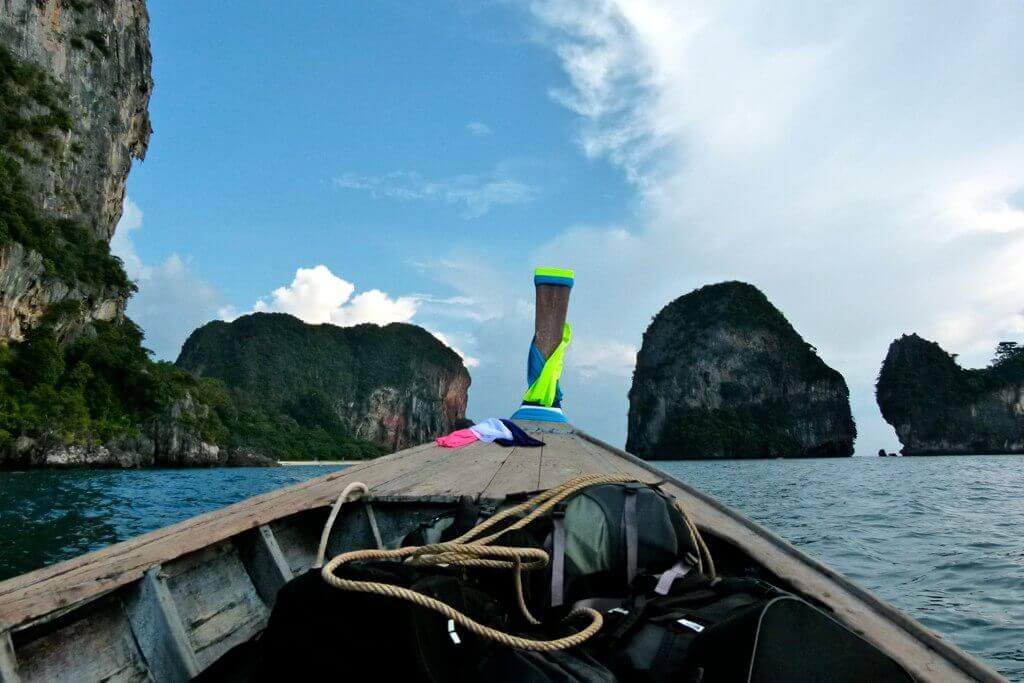
The first section of travel advice on this page isn't your typical travel advice. It's all about figuring out what your true travel philosophy is. Yes, this sounds a bit out there, and I guess it is, but it's something I didn't really think about myself for many years, and as a result over the last two decades I've taken a number of trips that weren't, well, great. If I had taken a bit longer thinking about why I was travelling, what I wanted to achieve by travel and who I was travelling with, I would have avoided many a "meh" trip and saved some money (and my damaging impact on the world) too. So do have a little read through of this first.
However, if you are an old hat and know exactly what kind of travel suits you best, skip this section and dig deep into my advice for planning and researching travel, some packing tips, a section of travel advice for family trips and travel with kids, and finally some sustainable travel tips if you're also leaning this way like I am.
DISCLOSURE: This post contains affiliate links. I make a small commission off any purchases made but they don't cost you anything extra, and often I do a lot of research to find you the best possible deal in the link - yay!
Travel Advice for Deciding Your Travel Philosophy
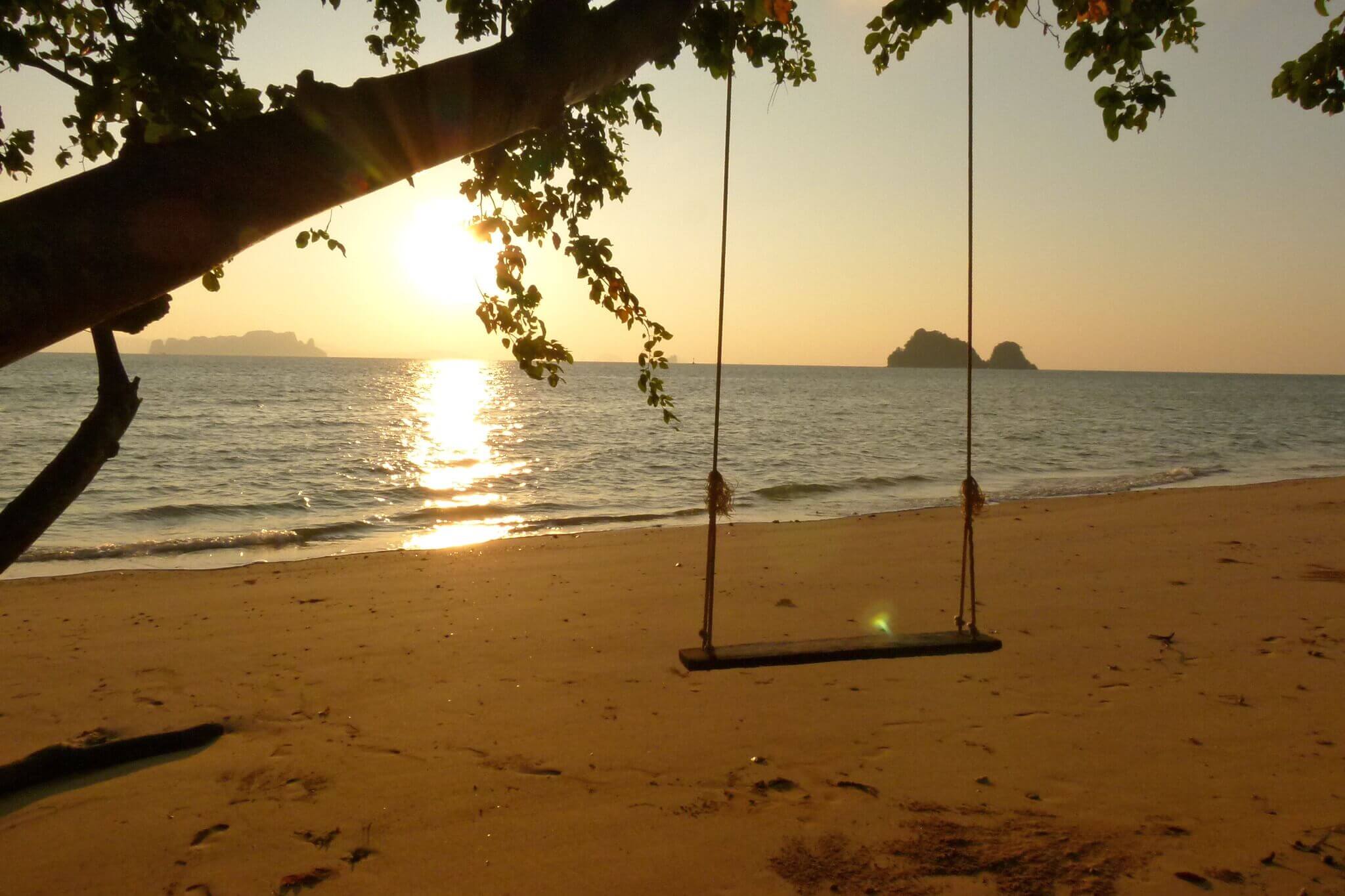
Wait up. What's a travel philosophy? Have you just made that up, Frankie? Well, yes, possibly.
I guess it's a fancy way of talking about the way you like to travel. For some people this will be known or even felt instinctively. You know how you like to travel, you know the ways in which you best connect with a place and its people. But others will struggle with this, which is completely normal, I think. We are fed a lot of mixed messages and we see a lot of people travelling a lot of places and as we live in the age of FOMO (Fear of Missing Out) it's very easy to get confused about what travel advice you should follow.
Especially in the current climate of over-saturation and just tons and tons of travel content bombarding us through social media, "old school media" and advertising, it can be very difficult to not be influenced by other people's travels, and yet while this is helpful to a certain extent in order for you to figure out how or why you want to travel, it can be too much and can lead to you thinking you want to travel a certain way just because you see so many others doing it.
So, take a moment before you read this long (LONG) list of travel advice tips to just follow some of this advice to help you figure out what kind of travel is the most fulfilling and meaningful, and well, fun!
- You're about to book your next holiday. Don't think about where you want to go, rather what you want to feel upon your return. Relaxed? Energised? Inspired? Motivated? Sun-kissed? Like you learned more about the world, one specific country, or yourself? In love with another country, person, food? Like you switched off completely? Or like you woke up?
- Think back to the countries you have enjoyed visiting most. Which were they and why was it so enjoyable? Think about that question a bit more and dig deeper. If your answer features anything to do with social media or the photos you took, try to think about other things you enjoyed... or has that place lost a bit of its appeal now?
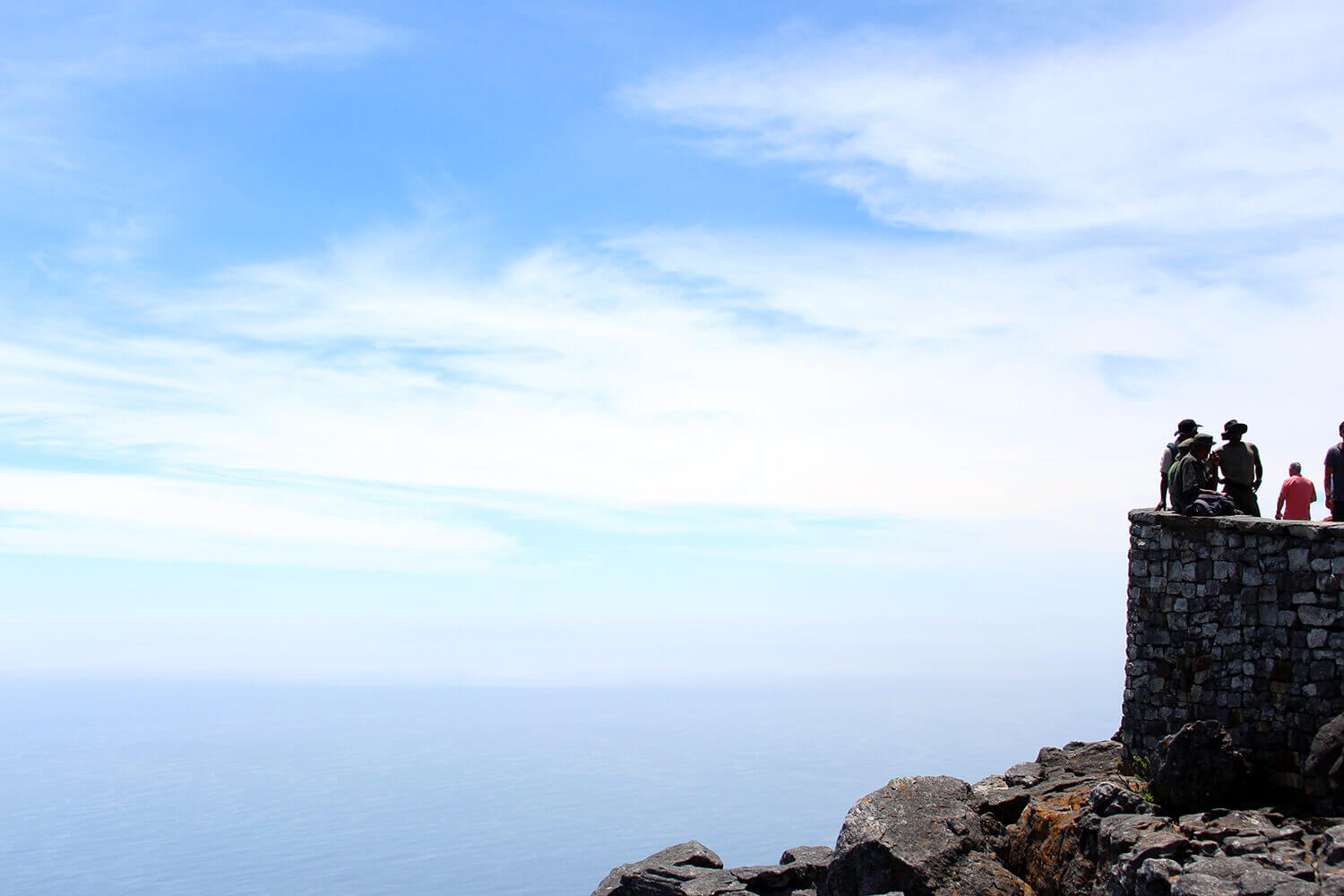
- Now think about the people you have most enjoyed travelling with? Why was travelling with them so fun? What did they add to your trip? It is totally okay if your answer includes Me, Myself and I here! In fact, that's awesome!
- Are you an introvert or an extrovert? Do you think about this when you travel? (i.e. Do you choose calmer, quieter and less crowded destinations if you are an introvert? Do you pick accommodation that works best for you to meet people if you're an extrovert.) It's a great idea to think about what gives you energy (in general) and to make plans according to this. For example, I am quite introverted in terms of where I get my energy (I need a lot of time to myself) so have never liked sharing accommodation with people I don't know well and even when I do travel with people I know I sometimes choose to sleep in my own room, if I can afford it.
- If all social media, cameras and phones disappeared tomorrow, where in the world would you still like to go most? This question always stops me in my tracks. In the past I've pushed aside any suggestion of returning to places I've already been even though I loved the country/destination/resort. Instead my mind was always focusing on how I wouldn't be able to get any "new" photos for my Instagram or blog. How silly that is! There is a lot of merit in returning to a place that you enjoyed!
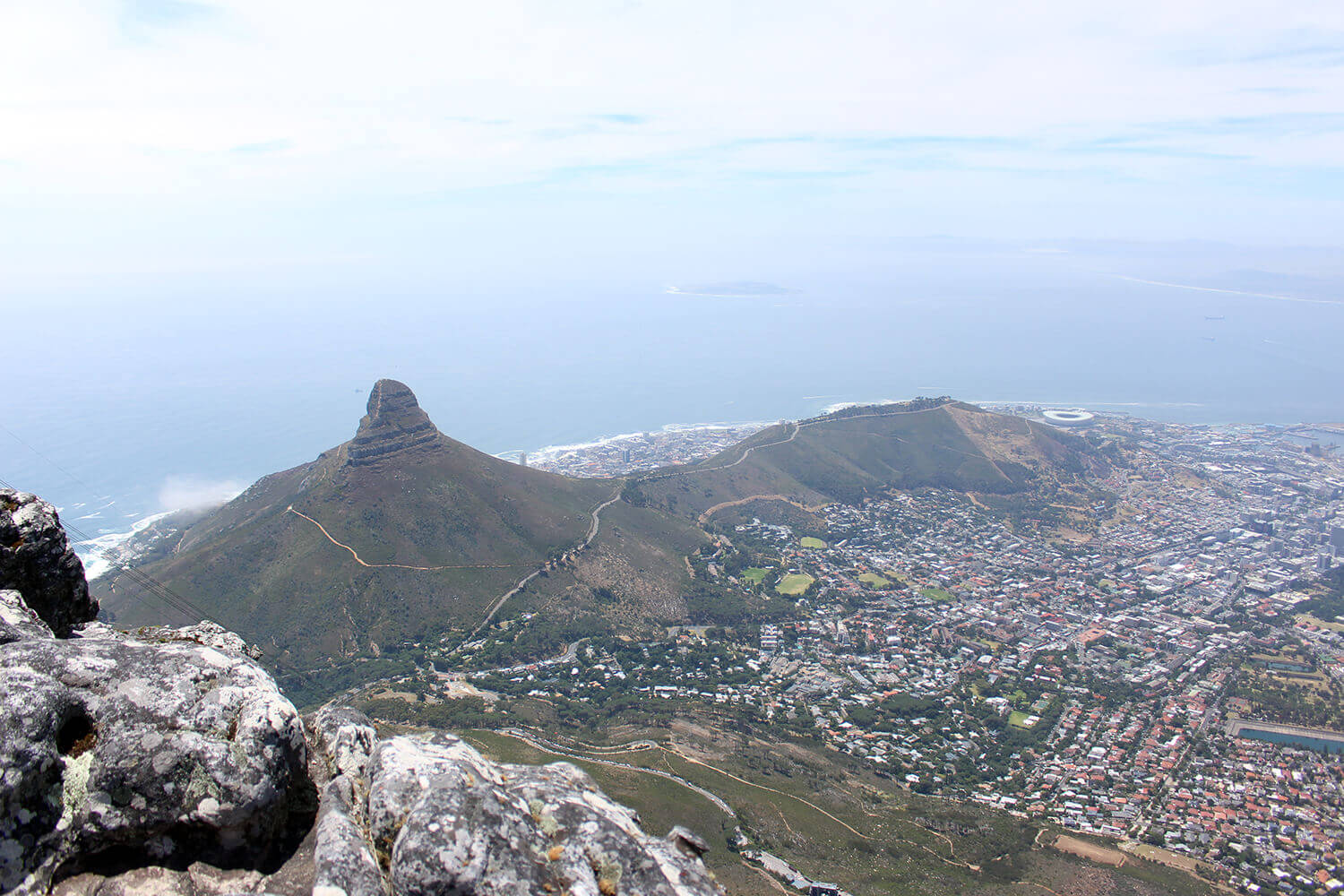
- Have you ever thought about going somewhere by yourself? Thinking about it doesn't mean you have to do it. But rather it opens your mind to the travel you REALLY want to do. Think about it as a liberating opportunity rather than a lonely venture. Where would you go, what would you do, what would you choose to eat, drink and see if you only had to suit your own interests?
- Are you curious about other ways of life? Is learning more about places that are foreign to you important? Do you hope to meet people from this place and communicate with them? How much research do you do into how you can achieve this? Is being respectful of their ways, traditions and culture essential? How much thought do you give to this before you go somewhere?
- Is the climate crisis of such pressing concern that you are now changing the way you travel? The last thing you want is for your travel to clash with values you hold dear. Keep your plans in line with what you believe in to avoid that icky feeling, and heck, so you can feel and know your are doing good too.
- How realistic are your expectations of travel? Do you want to see and do it all with some long-term travel, but you only have budget for one fantastic holiday? Do you want a five-star luxury getaway to an adults-only resort but you have two young children (Hell, yes, that's me!)? Adjusting your expectations is really important to help you plan travel that is going to be more fulfilling and much less of a disappointment.
- And if you have children, what's the most important thing about travel with them? Showing them different cultures? Teaching them about the world? Having fun in the sun? Having time all together away from school and work? This really is so important to think about because as I share below, travelling with kids, especially when they're very young, is not something to be done lightly.
There are of course no right answers to any of these questions, although I would like to think that we are all mindful of the current climate struggle and to respecting other cultures, lands, foods and traditions. Rather, I want you to be actively thinking about these things before you go ahead and make travel plans, because choosing the "wrong" way to travel for you can be an expensive, exhausting and hard mistake to make.
Travel Planning Advice & Tips

Now you know a bit more about what you travel philosophy you can keep this in mind as you go about planning some travel. You should also keep it in mind in terms of all the travel advice on this page. You can and should 100% "take it or leave it" depending on what is in line with your travel philosophy and the places you want to go.
But now let me share my best travel advice for planning a trip, from how I research places, accommodation and things to do, through to the resources I use to make bookings.
- When doing any kind of online research, clear your cookies regularly. There's a reason prices go up from one day to the next when you do the same searches again and again.
- Alternatively, look up flight prices, hotel rates and other prices in an incognito window.
- Do multi-source research. In other words, don't just use one blog, one social platform, or even just online research. Pick up a book, watch a travel TV show, go on Pinterest, talk to your friends in order to figure out where you may want to go, when and how. It's often said that we need to hear about something seven times before we're ready to invest in it, but often with travel all it takes is one Pinterest image or the same Instagram photo (taken and shared on multiple accounts) to make us feel we have to go somewhere. Get lots of different perspectives first.
- ENJOY THE RESEARCH! We live in an age of immediate gratification and we glorify being busy and doing ALL THE THINGS at once, and travel is not immune to this. We count countries visited like they're trophies, and I've been guilty in the past of planning my next trip before I've even finished enjoying the one I'm on. There's much more to be gained from slowing down, taking our time to fully immerse ourselves in a journey that can begin by reading a blog or guidebook, or chatting with a friend over coffee. Also, the more research, the more informed you will be. There will still be lots to discover, you'll just be doing so in a way that potentially saves you money and/or improves your experience. I highly recommend reading books set in your destination both before and after you go. (If you're coming to Amsterdam, this list of books about Amsterdam will get you very much in the mood or will keep the memories alive!)
- Find blogs that speak your language... or cover your travel needs and niche. There are thousands, if not tens or hundreds of thousands of travel blogs out there, most of which promise readers the best travel advice there is to know. Despite knowing and befriending hundreds of these people since I started travel blogging nine years ago, I would say that you can guarantee not many of them are the oracle on all matters of travel. In fact, that's nearly impossible because the way we travel is so varied and personal. BUT it''s very likely that there will be a blogger out there who really is an endless font of knowledge on a certain niche in travel be it a region, a lifestyle choice, who you travel with (or not!), or other things that influence the way you travel. A quick Google search (or hunt on Pinterest) should help you find a handful or more of blogs about that specific mode of travel or specific destination and then you should consume their content and keep in touch with them. Bloggers put in a LOT of hours in terms of trying and testing many things that could improve the way you travel so once a bit of research or scrolling leads you to a good one, keep their blog forever in mind when planning your next trip.
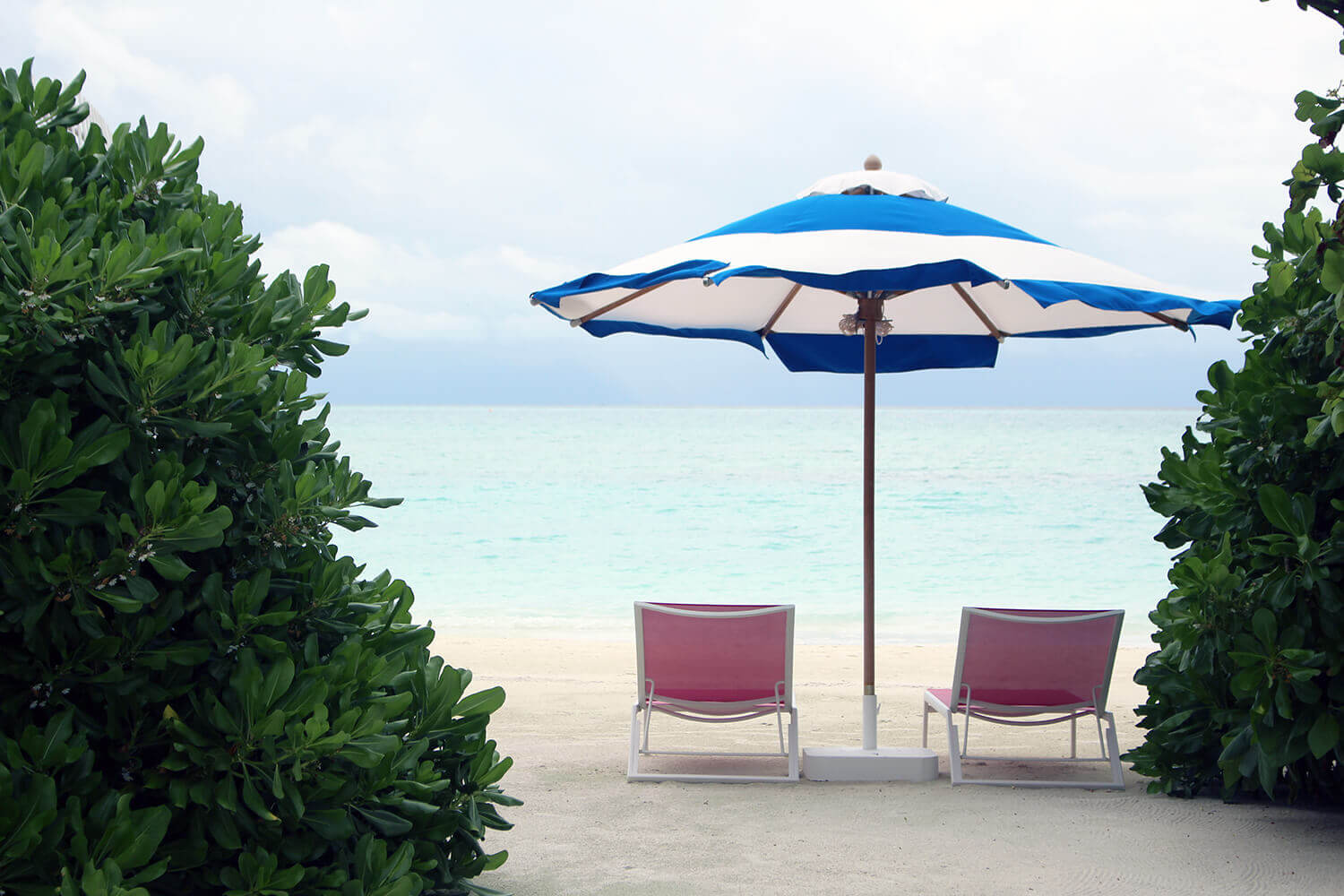
- Check out Facebook Groups. This is a relatively new discovery to me but if you want to ask questions about a destination, you will find many groups on Facebook where people are sharing travel tips for specific destinations. I am a member of an Amsterdam Travel Group and there's a great mix of locals (like me!) and other experienced visitors answering lots of questions from first-time visitors.
- Pinterest and Instagram are great BUT... Let's be honest Pinterest and Instagram are places where highly curated, heavily edited, and often digitally manipulated images prosper. So remember that those amazing travel shots you see may not be as real as you think, and will quite possibly look nothing like your own view of a place when you get there. Instead use these social media, especially Pinterest, to hunt for real-life travellers' advice, most often found on travel blogs like this one. Likewise, I would check out certain hashtags like #traveltips on Instagram, and also Twitter, to get real traveller tips.
- Contact the tourist board! So this may sound like I've travelled back in time a few decades ago but it's a valid bit of travel advice. Tourist boards (or destination management organisations, DMOs) are there for a reason! Typically, their sole purpose is encouraging people to come to a destination to spend money so they will happily answer your questions and help you plan the best possible trip.
- Know the visa situation. And then check it again. There is nothing more err... grounding than not having the right visa for a country. There you are, strolling off the plane with your neatly packed (see below), minimal hand luggage (again see below), waltzing up to the passport control of a new country just to be told you don't have the right visa for the country you are so excited to explore. Yes, this sounds VERY obvious but visa requirements change ALL THE TIME so a quick check could save you considerable stress and embarrassment, or worse a couple of extra flights home.
- Vaccinations are also important to check in plenty of time because sometimes they take a while to work, or you could experience nasty side effects.
- Read up on what the foreign office says too. For a long period of time I never looked at the UK's Foreign Office website to check what they advised about countries I was about to visit but then I ended up there to check advice about vaccinations and realised that there's quite a bit of information there. If you really don't know a place well before you travel, your government's foreign office is a good place to start.
- Dates are REALLY important. Choosing when to travel to a place is really important. You will of course have your own limitations in terms of deciding when to travel, but so do destinations and other travellers. Doing a little research to find out when school holidays, national holidays or regional events are in a destination is going to help you narrow down dates that will suit you and your needs better. This is especially important for winter sports holidays and summer vacations if you want to avoid crowds and queues. Likewise, it will effect prices BUT you may find more availability of tickets etc during the busier seasons.
- Off-peak travel or out of season travel doesn't mean terrible. Don't fall foul to the crowd mentality. Yes, summer is a great time to travel to certain places, but even if they don't have the weather these destinations still have the same culture, food, history and people at other times of the year. Also, it's well worth remembering that the weather is NEVER guaranteed anywhere at anytime. Again this is where good research can really help you come up with rainy day ideas so you're not completely dependent on the weather to have a good time.
- It's good to book in advance to save money, but it isn't always necessary. This article claims that the optimum time to book flights for the cheapest possible fare is 54 days in advance, which is actually around two months in advance so not that early, really. In fact, flights won't start to move around in price much until between 121 - 21 days before departure so this is the time to start monitoring flight prices (in an incognito window, of course!). You could also use the app Hopper which helps you figure out the best time to book your flight for a certain route.
- When flying, ALWAYS look up the airport's location in relation to your destination and how to get to/from there. A cheap flight can often mean an out of town airport that will cost you the same amount as the flight to get to and from. Make sure you know where that airport is and how accessible it is before you book a flight.
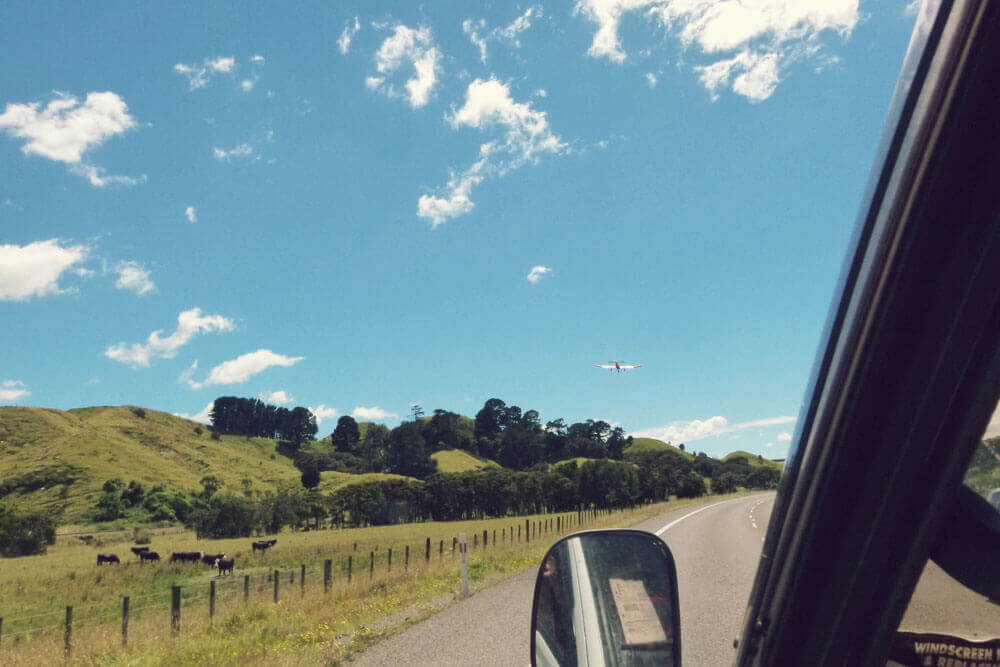
- Knowing a few not-so-secret travel planning tips could go a long way when booking flights! For a long time research showed that Tuesday was the best (i.e. cheapest) day to fly on but now articles say this isn't the case. That said, it does still seem that it's best to book flights on a Tuesday, around mid-afternoon.
- And for booking hotels... Needless to say for hotels and other types of accommodation, Friday & Saturday check-ins with a Sunday check-out are the most expensive. You can often get good last-minute deals if you book 1-2 days before you check-in because this will be when people have cancelled just outside their cancellation period, and business hotels (i.e those close to airports, convention centres and central business districts) will sometimes have good deals during the typically more expensive peak times of Christmas and summer because that's when they will have fewer business customers. More hotel booking tips here.
- You don't need to book via TripAdvisor but I nearly always check a hotel on TripAdvisor just to see the real traveller photos. I rarely expect them to look the same as the ones on a hotel website but it's good to see just how different they may look! I also do price comparisons on TripAdvisor, Booking.com and the hotel's own website.
- Sign up to loyalty programs. Nowadays customer loyalty is worth A LOT to hotels , car rental companies, and airlines so they often offer many incentives to join loyalty programs with free gifts like free WiFi, lounge access or discounts from your first visit or flight. Also, FYI, an airline are always going to give a free upgrade to a member of their loyalty program before someone who isn't. So before you book a hotel or flight, sign up to any loyalty program they're a member of (a quick Google search will tell you) and start collecting points and/or taking advantage of deals, discounts and more. You can (and should!) of course mute or unsubscribe from their marketing emails etc, this won't exclude you from their loyalty program.
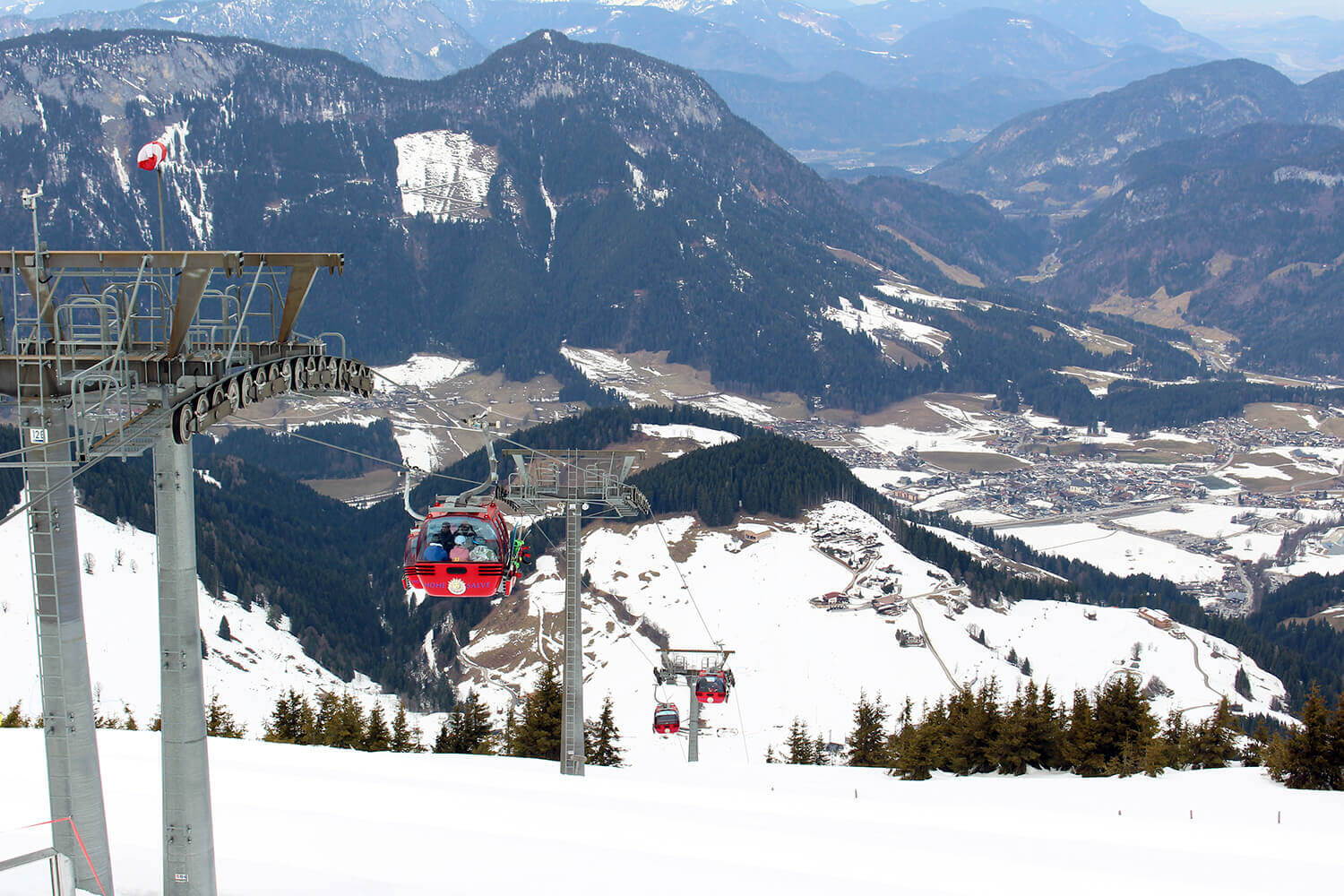
- Even booking websites have loyalty programs too! I didn't know this until I started doing research for this page, but you can also get deals and discounts by signing up to loyalty programs for booking websites like Hotels.com (where you can get a free night after you book 10 nights through them), Expedia, and Booking.
- Sign up to a few websites/Facebook pages to take advantage of deals. I'm usually not one to advocate signing up to deals newsletters, websites or social media but the truth is there are some sites that dedicate their whole existence to finding flight deals and sharing them. And they really do find some monster deals. I'm not sure how they do it but if you have a lot of flexibility on where you go and when, you should be signed up to at least one or two. These are some I know people have found great deals on - Scott's Cheap Flights, Skiplagged, The Flight Deal You can also set up cheap flight alerts for particular routes on both Kayak and Skyscanner.
- Go direct! While I'm huge fans of booking websites to get an idea of availability and prices, it is always, always worth going direct to a hotel, rental or airline's website to check your dates and prices. If you're really keen to guarantee a good price for something, you can also ask to see if they can do a better price than what you found on Booking.com. They pay commission to these booking websites so they really may be able to do a better price.
- Ask for a discount or about special offers!! Returning to a hotel for the second or third time? Ask if they have a return customer discount. Are you a semi-decent photographer and plan on shooting some pics of a destination or a certain landmark? Reach out to a tour company and ask if they'll give you a reduced price or free tour in exchange for a photo or two? Are you travelling in a group and want to book some restaurants for your trip? Ask them if they can offer you and your group any discounts or free drinks? IT NEVER HURTS TO ASK! If they say no, you have lost nothing (but time!) and if they say yes, winner!
- ALWAYS book popular attractions in popular places in advance. I know this is the least sexy piece of travel advice I can offer, but it's well worth following unless you like queues and crowds and there is no better fun for you than wasting what little time you have in a destination standing outside it. As popular destinations get busier and busier, many attractions are moving to advanced online booking only for visitors. In Amsterdam this is certainly the case for Anne Frank House Museum, and in a similar way for Van Gogh Museum, so do yourself a huge favour and book in advance. Even for attractions that don't require it, it's often still worth it to do in advance so you trip has some structure, your guaranteed entry and you won't waste any time in queues. I've been recommending GetYourGuide and Viator as online booking agents for tours, museums, attractions and more for years and have never had any bad reviews.
- Download Google Maps for your destination so you have it available to you offline just in case you have problems getting or staying online.
- Also make sure you have Google Translate ready for action, and maybe also the public transport app for getting around. It may also be worth seeing if the local tourist board have an app with travel advice and tips for things to do.
My Best Packing Advice & Tips
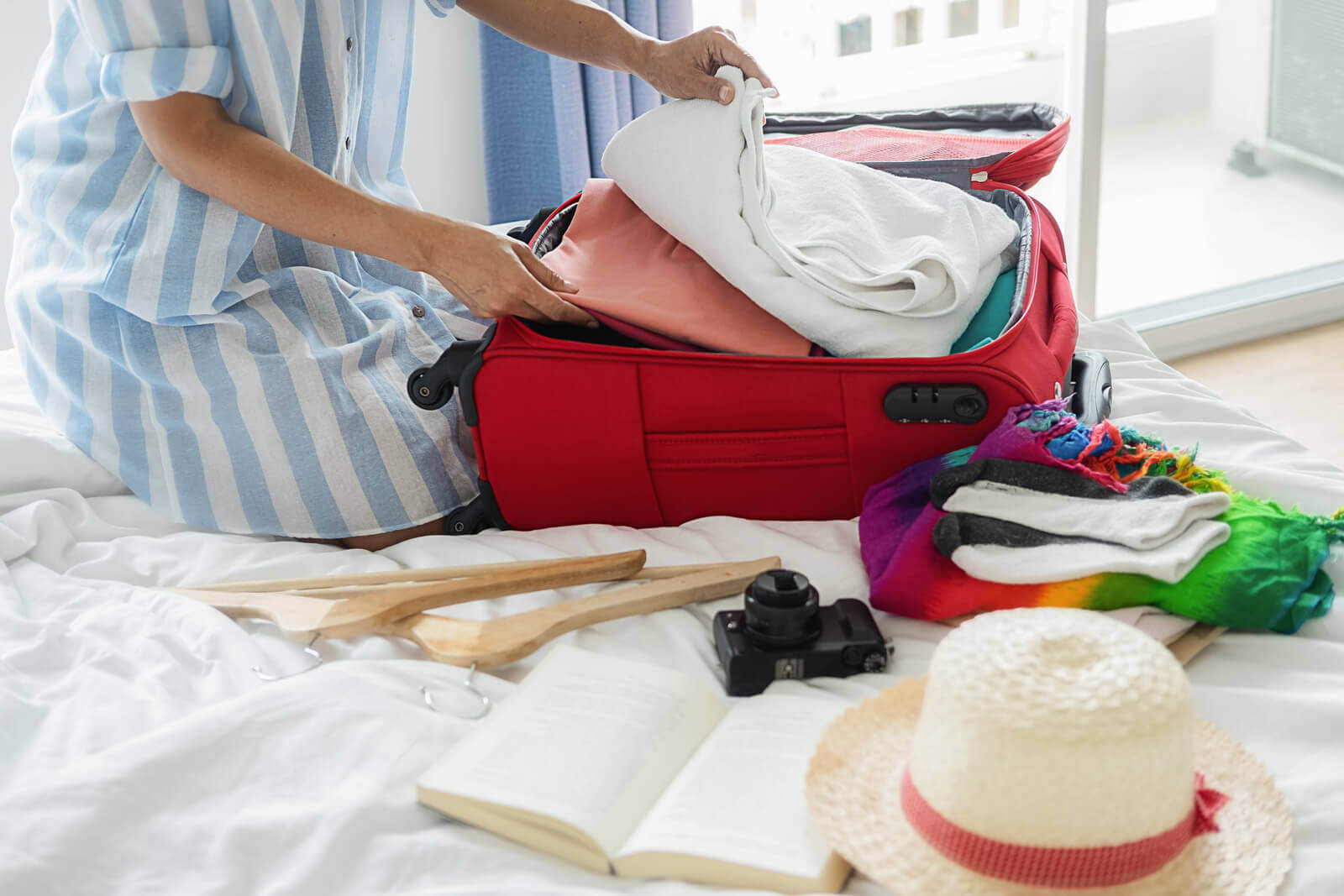
As much as we all love travel, I think it's fair to say that the majority of us don't actually love to pack for upcoming travel. I mean, I'm sure they exist but I suspect they're also the type of people who would walk into my bedroom see the five piles of (washed and folded) clean laundry that are on my floor and find it impossible to ignore them or not put them away. In other words, people who love to pack for travel are wonderful people, but they're the kind of person I am.
And let's be even more honest, packing has become even less fun now I have to two small children to pack suitcases and carry-on stuff for as well. In fact, when I look back on my days when all I had to think about was my clothes, my beauty products and luxury of luxuries which books to load up onto my Kindle, gah... I didn't know I was born. Anyway. Here's a brain-dump of all my best packing advice to help you make packing an easier process
- Contrary to many other travel bloggers' travel advice, I'm a big advocate of checking in luggage. Yes, I know this can bump up the price of your flights and yes, there are risks of luggage going missing but if you can take a checked-in bag, DO IT. It means you get to take more stuff you need (rather than buying in destination or wearing the same thing for 5 days), you don't need to stress over liquids being under 100ml, and you won't break your back in transit because you are carrying EVERYTHING in a backpack.
- Before you start packing, or even writing a list (yes, I may leave my clean laundry on the floor for weeks but I am a big believer in lists) do your research on the weather in your destination. Do this A LOT, not just once, because SPOILER ALERT, the weather can change from day to day.
- Once you are confident you know what the weather will be, start writing your list. I mean, lists. I use the following columns to organise my stuff so I have everything covered and I can pack in batches too: Clothes / Beauty & Bathroom Products (including toothbrush and meds etc) / Electricals / Carry-on Luggage / Other.
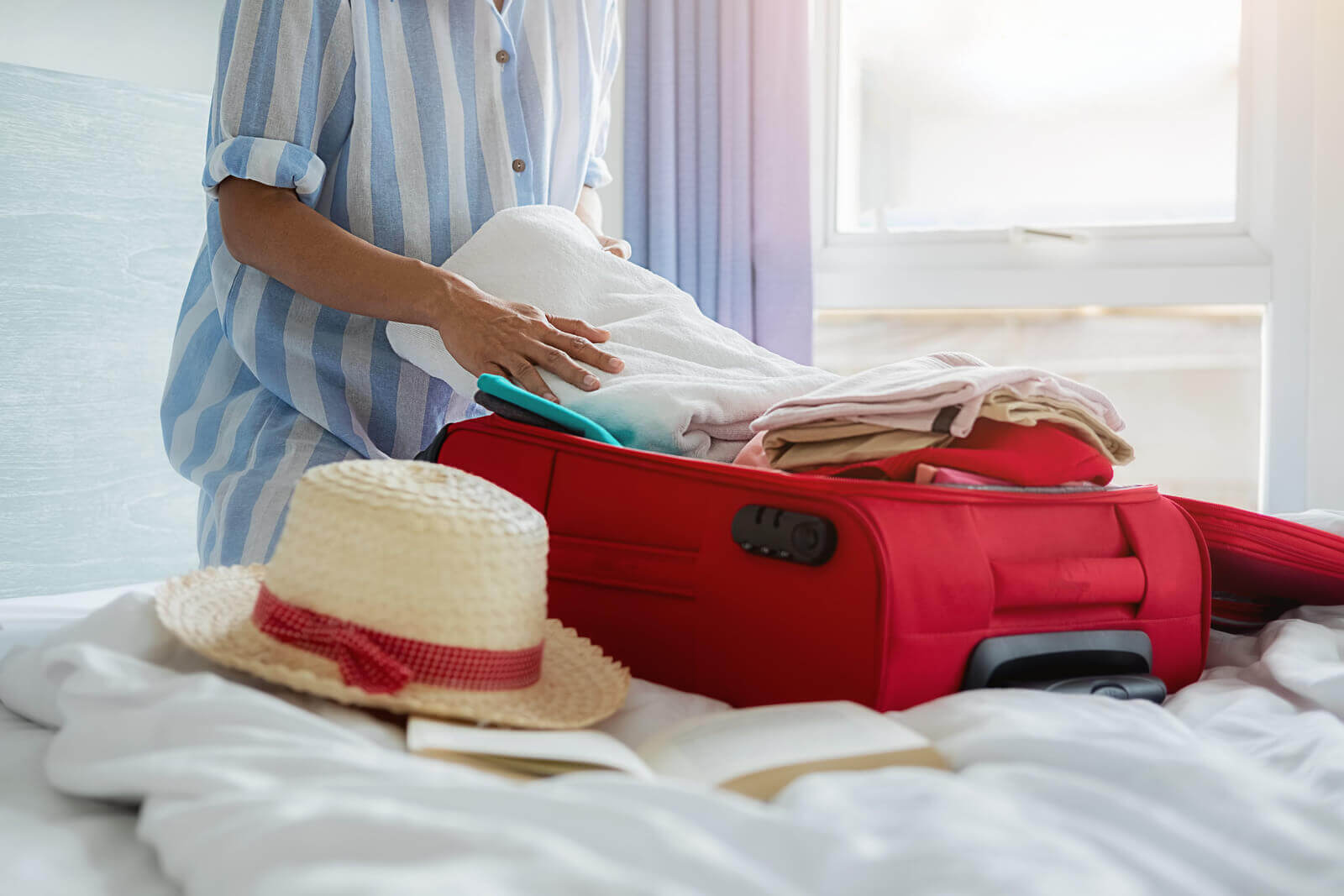
- I strongly advise writing and saving your lists electronically so you have them again and again (of course you can adapt for each journey, but it's always good to have a template to start with).
- Never pack more in your carry on luggage than what you can carry. Because, duh you have to carry it. It's fantastic that your airline lets you carry on three bags, a buggy (even though you don't have kids) and a wild bird of prey (true story) but YOU DON'T HAVE TO take all of these things just because it's permitted. Having more luggage while travelling (even in the case of checked-in bags)
- Believe the hype. Packing cubes really do help, in terms of organising, planning, storing, maximising space, and re-packing on your way home (not to mention keeping your dirty laundry separate from clean clothes. That said, it's worth taking time to think about what size cubes you really need rather than just ordering a set of five in five different sizes. I will talk a bit more about this below in my travel advice for travelling with kids, but I prefer to have four medium to big packing cubes, plus only one or two smaller ones, as these just aren't as useful. These are the most similar to the packing cubes we have which I bought so long ago I can't remember exactly what pack we got.
- It's totally possible to be a lazy traveller and be good at packing, if you're prepared to do a little prep in advance, and thus make your future lazy packing life SO easy. I swear by these tips, especially having a beauty bag always packed and ready to go, a list that you keep (as opposed to scribble all over and throw away once completed) and the life-changing magic of rolling..
- Roll with the homies, because this absolutely rolling clothes up means more clothes in less space, and less creases in your garms BUT keep in mind that more clothes will also mean more weight so if you have a limit, or a bad back, don't overdo it.
- Unpack whenever you can, yes, even for an overnight stay. Because you will save yourself time when it comes to finding things and getting your lovely self dressed even if it is just ten seconds opening a drawer to find clean pants as opposed to rummaging through a backpack for questionably clean underwear.
- For long term travel, seriously consider packing a small bag of dried lavender or other scent-producing dried flowers etc. I know it sounds ridiculous, but if you're going away for a long period of travel and you may not get an opportunity to wash your clothes regularly, or there's a good chance you'll have wet clothes packed in your bag every now and again, give yourself the gift (or rather, the illusion!) of clean smelling clothes and belongings until you actually can get that old dirty towel wet. (PS Fast drying towels like these bad boys are a worthy investment.)
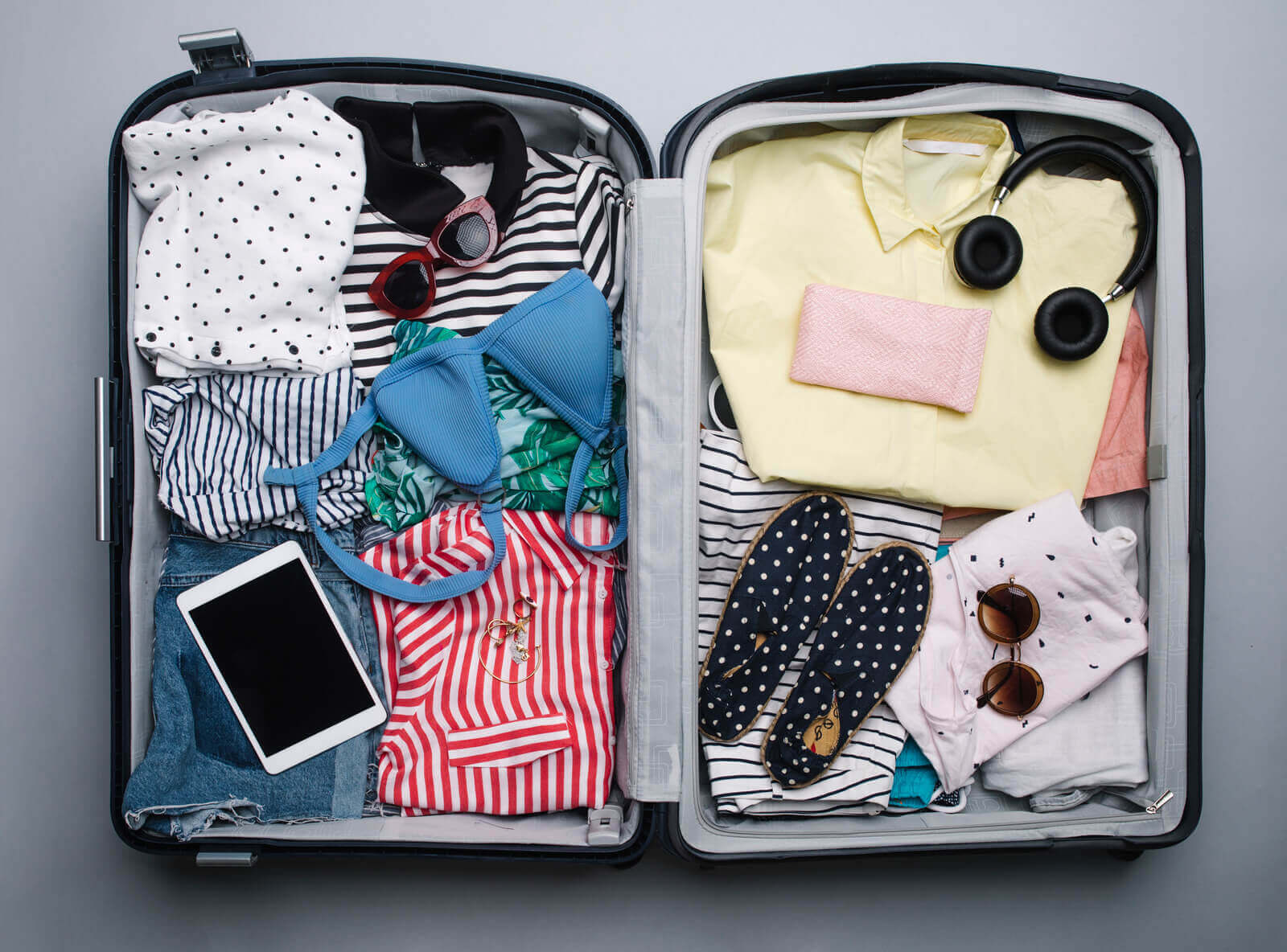
- Wherever you're going, whatever you're going to do, however long you are travelling for, clothes pegs, clips to re-seal plastic bags, re-sealable plastic bags (or this eco-friendly alternative), and a couple of fold-up bags are your BEST FRIEND.
- Likewise, consider always travelling with a decent soft cotton sarong or shawl that can double up as a scarf, cover-up, make-shift blanket, hair cover, pillow and err. actually a sarong.
- Never pack or wear new shoes on holiday. Wear them in first unless you want to know the local language for blister plasters.
- It sounds obvious but look after your passport. Invest in a good passport holder (I've had one like this for years!) so when it ends up (inevitably) in your mouth as you race through an airport terminal the bite marks won't cause actual damage. And check your passport regularly for stains, torn pages, or the laminate lifting off your photo page because all of these things and many more could mean you spend longer than you want in a passport queue, and possibly refused entry.
- And finally, in this day of digital and online EVERYTHING, there is NO shame in buying paper maps and guidebooks for your destination. In fact, I think doing so is quite wonderful.
My Best Travel Advice for Airports & Flying
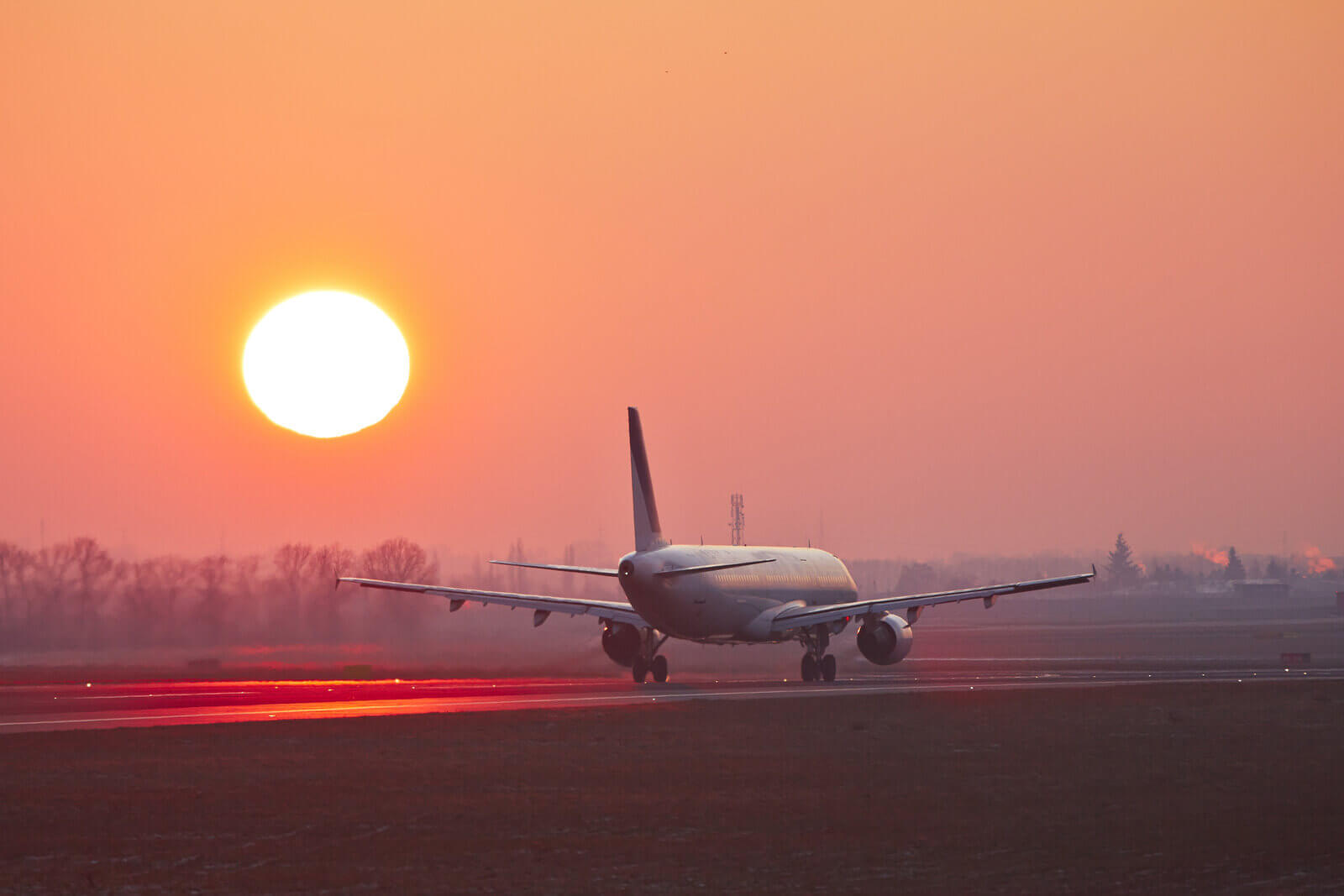
Love 'em or hate 'em, but airports are a fact of many peoples' lives and yet every time I'm at an airport I see people who struggle and stress and sweat and swear (etc) their way through the airport from checking in to boarding the plane. I know for some people it really is their first time flying internationally, but I also know that there are many frequent flyers who make the same mistakes over and over again.
The good news is you really don't have to, especially if you have a read of the below, my best travel advice for navigating your way through an airport, and also some travel advice for flying too.
- Research your airport before you fly. We live in the age of the Internet and of over-sharing and of bloggers (which for people like me is basically one and the same thing; life!) and so you can find a lot of objective information about even the smallest and most obscure airports. Finding out how to get to and form the airport, the opening times for shops/restaurants, the size of the airport (especially if you have a layover!) and what facilities are or are not available will help you feel more confident and informed about your journey, trust me. And you may be pleasantly surprised. Some of the world's biggest airports (and indeed some of the smallest) are destinations in themselves with museums, viewing platforms, kids play areas, baby care zones and cots for babies to nap in, purpose-built family care bathrooms, countless bars and restaurants, vast duty-free shopping opportunities, and souvenir shops... and that's just Amsterdam Schiphol airport! Good websites for reviews of airports, including their airport lounges are Flight Report, One Mile at a Time (for US-based travellers), The Points Guy,
- Research your airline before you fly. The same goes for the airline/s you are flying with. Find out what you can expect by looking at their website, at blogs, social media and on expert flight review sites like The Points Guy and Flight Report. If you have questions or concerns, contact them well in advance (many airlines have excellent social media customer support on Twitter, Facebook and even WhatsApp.
- Research your flight before you fly. You can even find out more information about your flight before you fly, which could help you best prepare for the journey. On the SeatGuru, you can find out what plane you'll be on, where you seat will be (and what the best seats on the plane are just in case you are yet to reserve your seat) and how likely it is that your flight will be delayed. And if you want to fly Business Class or higher, I recommend checking out this blog's reviews of certain routes.
- Keep an eye on any flight with Flight Radar. If you love flying then you probably already know about Flight Radar which tracks all flights live (as in you can see little planes moving around on a map - very cool!). It's a weird one to know about when you're already going to be on the plane and so not really that interested in monitoring your own progress but if you're ever waiting on a flight to pick someone up or for a connection, it's well worth knowing about. You can also find lots of information about planes and airlines on the site or in the app.
- Always order the vegetarian meal. Okay, this is just me and my borderline superstition but I know from talking with other frequent flyers that this is quite the done thing. Meat is more risky when it comes to food poisoning or just getting a meal that is not to your taste, and so we always order the vegetarian option if we have the opportunity. Also, it often means you get your food first!
- When you check in bags, ask if the flight is full. If they say no, you can then ask to be put near an empty seat if possible. The worst thing they can say to this last question is no, so I always think this is worth asking.
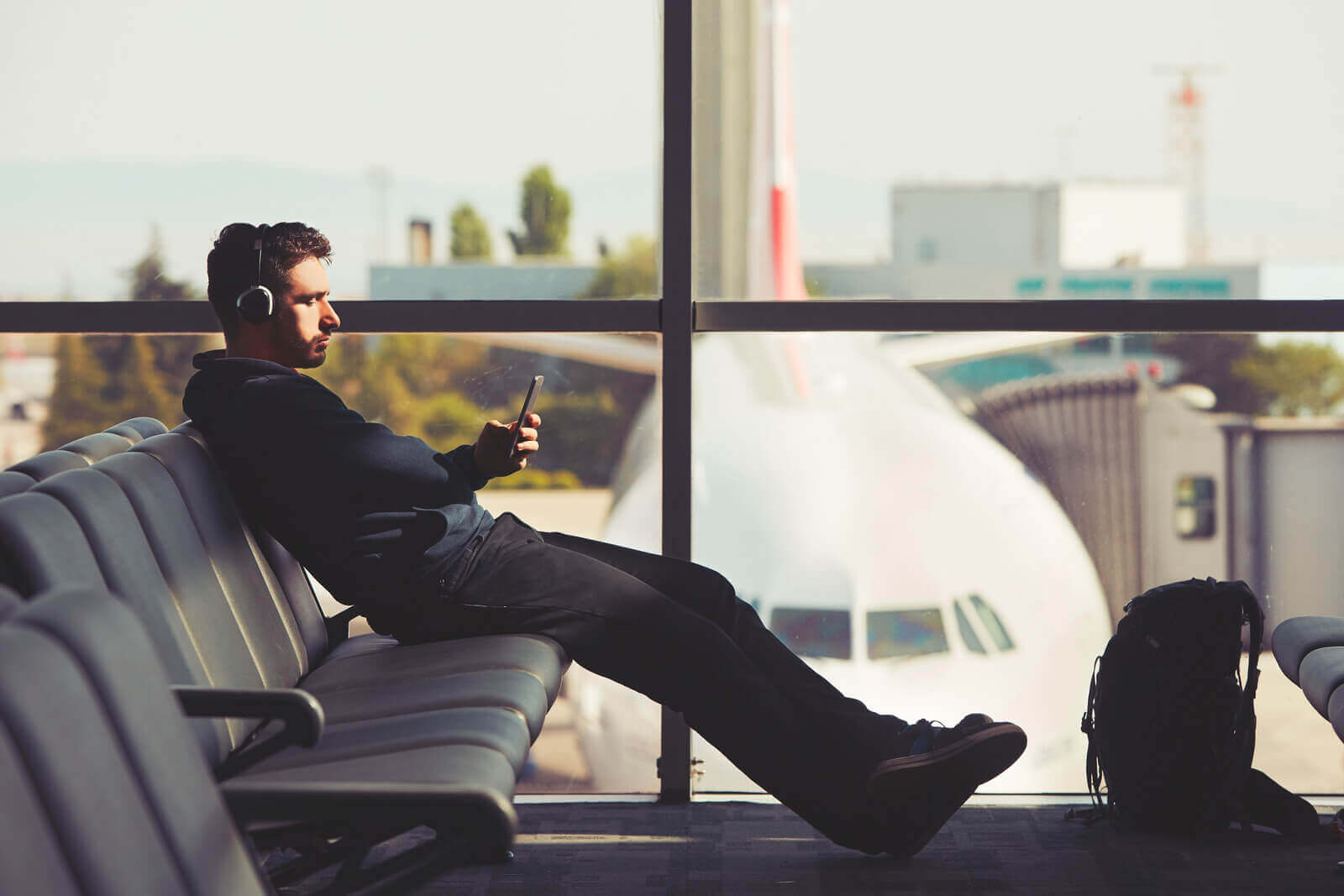
- Be ready for security before you even join the queue. Airport security can vary from location to location and indeed with both new technologies and new terrorist threats coming out all the time, how airport security scanners and computers work will also vary. But a few things are certain regardless of where you are or where you're going; 1) You will need to put your hand luggage and your human body through a scanner at some point, and 2) there will be (hopefully!) quite clear instructions either in the form of signs or in barked orders by staff about what is permitted and what is not. You can also look these rules up in advance. So getting to security and panicking because you have 3 full bottles of a sports drink in your bag, and so you start to guzzle your way through them before you load your bag onto the conveyor belt, holding up hundreds of angry travellers behind you, is a littler... annoying. It took a while but having all the things I need to get out of my bag for security - my laptop, liquids and any baby foods/medicines - easy to hand has made security go from hell to well, slightly less hell-ish.
- Find out if you can pay to access an airline lounge because this may actually be cheaper than buying lunch and a drink in an airport shop. I learnt this trick when I used to travel a lot for work but hadn't quite yet got the points to bump me up to free airline access, but when I once went to enquire if I could just sneak in they told me I could pay to access the lounge. The price seemed steep but when I did some quick mental maths I realised €25 (or whatever it was) would actually not get me much in the form of a sandwich, drink and coffee, and besides, there was free wine and beer in the lounge, and faster WiFi. This is definitely worth remembering!
- Unless you are flying on certain budget airlines, why queue for the plane? Now I'm not one to say you should sit in your seat snoozing until the final call - PLEASE nobody be that guy - but I am saying there is very little to be gained from standing in a queue for a long time when you have an allocated seat already, and indeed, sitting in a hopefully more spacious airport gate is going to be a lot more pleasant than sitting in a cramped plane seat watching everyone trying to cram their suitcases into the overhead lockers.
- The one exception to this is if you have a lot of hand luggage and you want to ensure it is in the overhead lockers near your seat - yep, I get that you want to secure this space and fine, go ahead and queue, as close to the front as you can!
- Speaking of which, if you can't get your luggage in an overhead holder right next to you, do what you can to find a space in the front section of the plane rather than behind your seat because trying to get your bag once you've arrived and the whole of the plane suddenly have the runs or something and need to disembark IMMEDIATELY, you'll experience the very definition of swimming upstream.
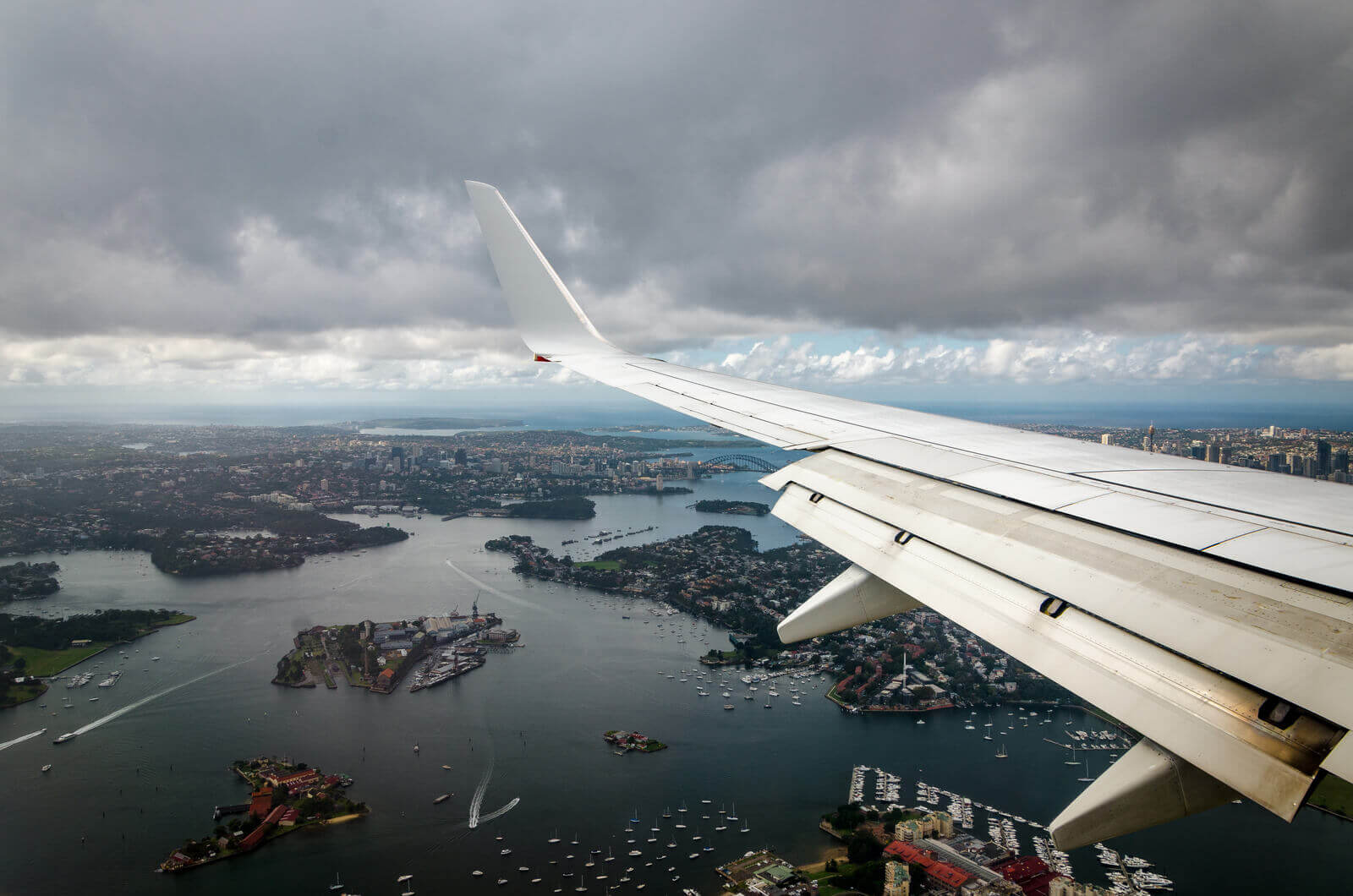
- NEVER EVER EVER PUT ANYTHING in the compartment in the seat in front of you. Unless you want to lose it because you will forget about it or not be able to find it easily in the rush to get off the plane. (This rule has stood me well for the longest time. You may wonder where I put my book, magazines, sweets, phone, headphones, manicure set etc? My answer is 'I have children!' But also I don't put the kids stuff in their either. I have cold sweats thinking about losing their favourite cuddly toys to the dreaded seat compartment.) I always have my rucksack bag under the seat in front of me (and a place for everything in it - see below) so I just use that.
- If you need special assistance OF ANY KIND, contact the airport and your airline in advance. Both have teams of people whose jobs it is to look after you and facilitate your journey as much as possible. Of course, the response you receive may (sadly) vary considerably from accompanying you through every step of it through to well, not being able to accommodate your needs, but please know that most airports and most airlines certainly have the means to offer you assistance.
My Best Travel Advice for Families
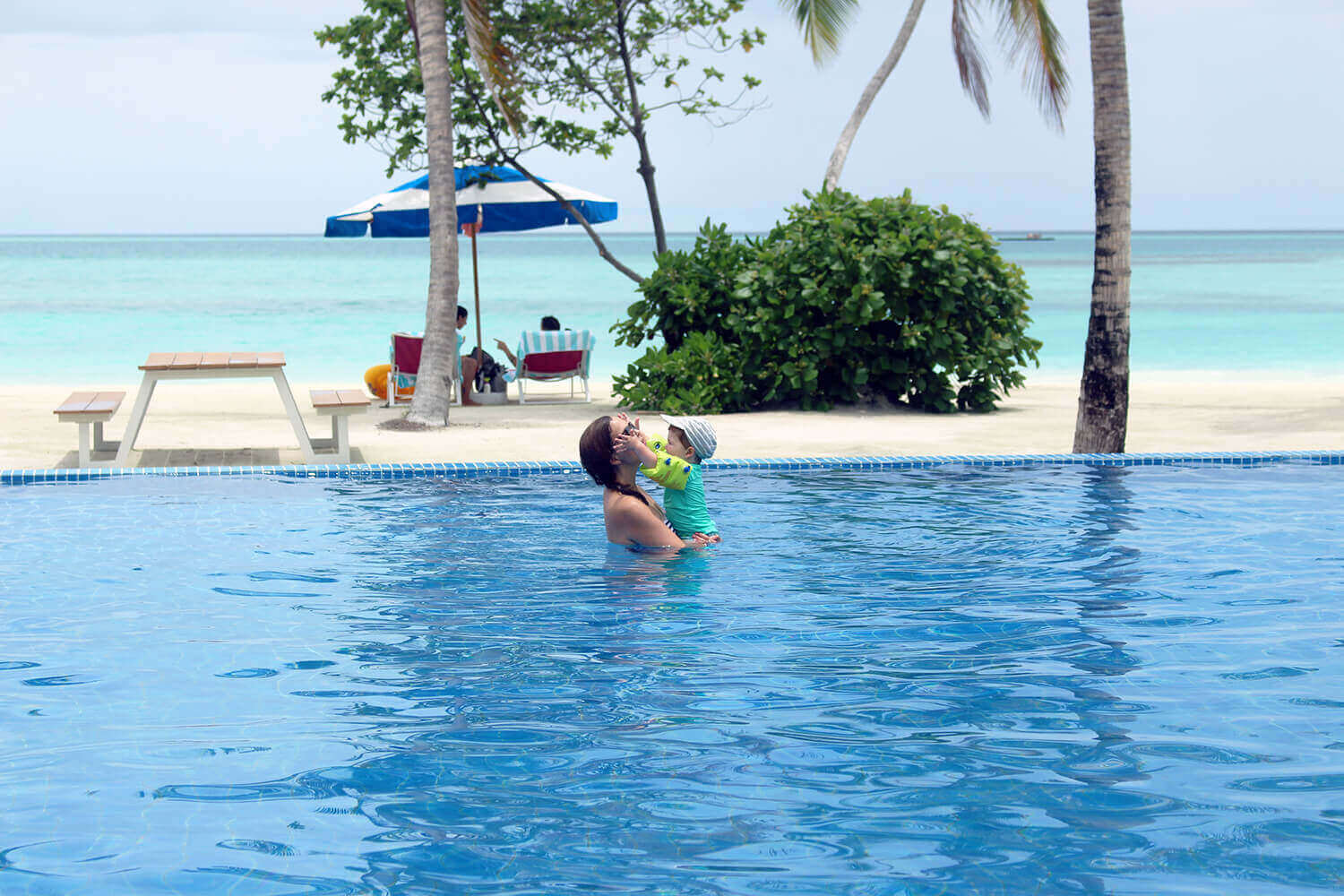
Now, if you've been checking in with my blog for a while you'll already know I've written a lot about family travel here. From choosing the right time to travel with kids, tips for flying with a baby, how to survive long-haul flights with a toddler, how to beat jet lag in kids, what to pack for travel with a baby, the best toddler travel essentials, through to the best airlines for flying with kids and the best luxury resorts for family holidays
But before you get stuck into all those articles (and many more here) here is some very simple but important travel advice for you to digest, ideally before you even book your first family trip.
- Do what you can to preserve energy and sense of humour prior to the journey even beginning. Take it from my own terrible experience, if you have a long (or even short!) journey with young human/s ahead of you then do what you can to preserve your energy prior to the trip even beginning. Any journey is always easier when you are rested and have energy. Of course, this is not always possible (again because of aforementioned small humans) but just do what you can to start packing well in advance, to order take-away the night before (or just have toast for dinner - kids love toast!), or if you can afford it book a babysitter for the day before so you can have a break. Future potentially stressed, bedraggled and exhausted you will thank you for it!
- Travelling with kids is NOT the same as travelling without kids. Is this the most obvious thing I've said yet? Yes, probably but it took us maybe 3-4 trips with a baby before we finally realised that travel with a kiddo was proving so difficult not because we were terrible parents or our kid was a terrible baby (although it's possible both things were true at certain times) but because we were metaphorically trying to fit a square peg in a round hole. We were planning too much, picking impractical destinations and accommodation, booking flights that didn't work with his schedule (or our sleep-deprived brains that liked to switch off at 8pm), and we were generally setting ourselves up for a fall. Once we totally adjusted our expectations and our requirements accordingly, travel magically got quite a bit easier. Needless to say, some people do manage to travel in the same way as pre-kids because they are possibly more chilled, and their babies are ridiculously flexible (I am trying not to hate these people, by the way) but it was our experience that travelling with a baby was always more successful when we planned and booked the travel to suit the baby not the other way round.
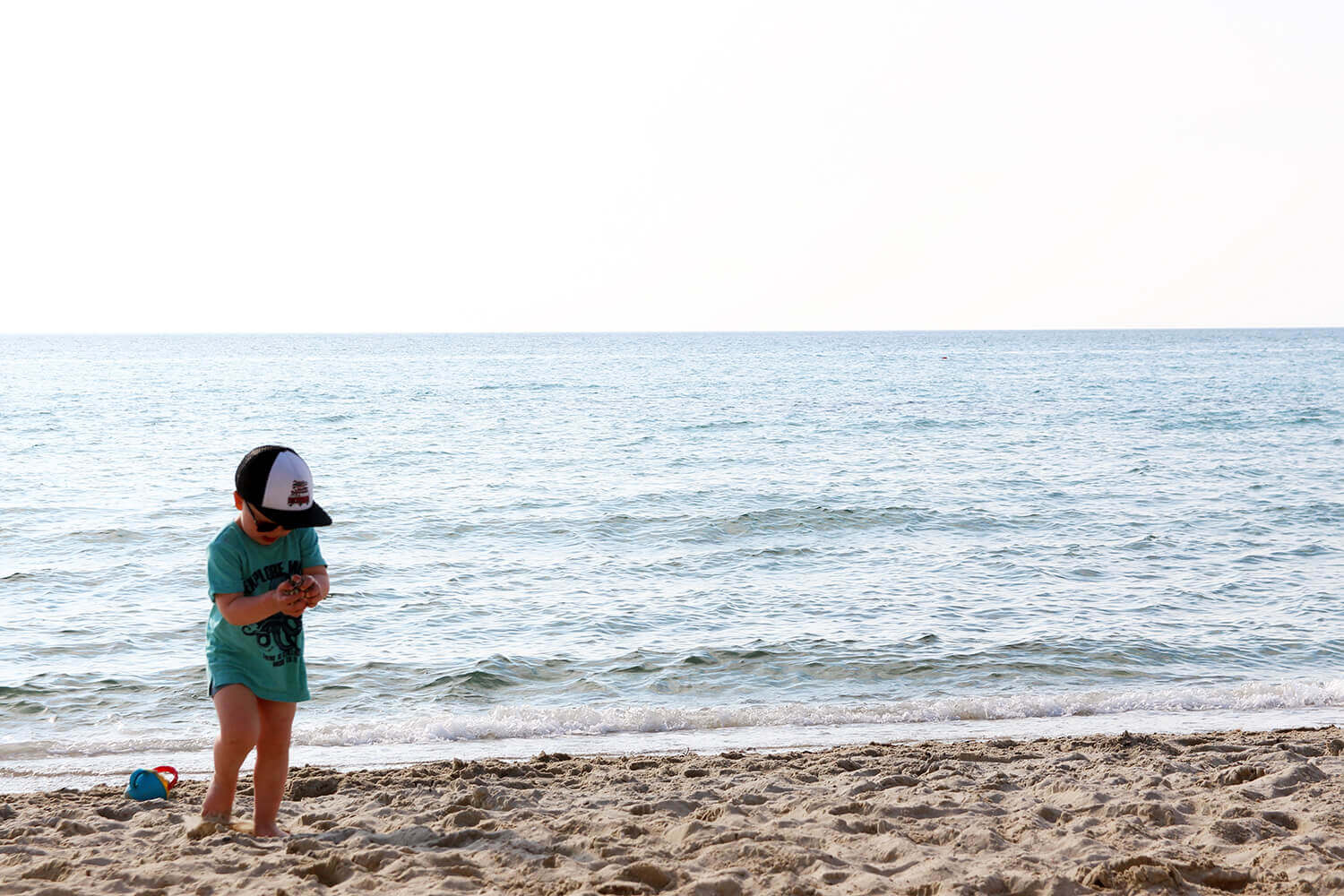
- It therefore follows that one of the best things you can do before travel with kids is to keep your expectations very low. Prepare for the worst, so anything else feels like a bonus. (P.S. Out of maybe 20 different trips with our eldest, to date, less than 5 have been as bad as our worse expectations or worst... but that's another story! Personally, I don't think this ratio is that bad!)
- Find out what luggage your kid is allowed to take on a flight as it will vary from airline to airline. Knowing if you're allowed to take a pushchair, a car seat and two bags of hand luggage just on your kid's ticket is well worth finding out (but again it doesn't mean you have to maximise your allowance because again, you have to carry all this stuff, plus the child!)
- So PACK AS LIGHT AS YOU POSSIBLY CAN. This is the one thing I see families in airports get a bit wrong, in my opinion. Lots of luggage means lots of stress, for me, as it's more bags to carry, to lose things in and also more stuff to misplace or leave behind somewhere. It's taken a while but over the years I've managed to whittle down our hand luggage to the bare essentials (changing stuff for baby, change of clothes for all, snacks, liquids & meds, the iPad, my phone, a few small toys, and a small first aid kit) and this normally means I can travel with just a (very full!) backpack, and sometimes a smaller backpack which my son can carry with his toys and some non-liquid snacks inside. This means if I'm travelling alone with two kids, I still have both hands free to hold one on my hip, grab the other before he runs away and then face-palm myself for my life choices.
- If you can, travel with a baby carrier to strap your baby or small toddler in. Again this gives you your hands free but it may also keep them calmer and happier to sleep, because of the reassuring closeness to you. I am well aware not all kids like being carried in this way so try it out a few times before you travel to get baby used to it or to see if it's a good idea. You could borrow a carrier from a friend for trying it out or find out if your local library or community centre have a "baby carrier library" that you can loan one from. A carrier has proved essential for us when travelling with a 3/4 year old as well as although his legs really can manage the distance we have to walk in airports, that doesn't stop him crying or complaining and so we can then scoop him up and put him in the buggy. My favourite baby carriers over the last 4.5 years of on-off baby-wearing are the Ergobaby Original (and I've heard very good things about the Ergobaby 360 model too), and this beautiful Artipoppe leopard print one as seen in the photo below. (And if you'd like your own Artipoppe carrier you can get €50 off via this link).
- If you are using a carrier, and especially if you are travelling alone with a baby or multiple kids, keep that carrier strapped around your middle even when the baby is not in the carrier. This means you can easily put them back in if you have to without having to put baby down again to strap it on, even if this only takes a few seconds, any parent knows that is long enough for a kid to get into all sorts of mischief. It also makes getting off the plane significantly easier because there really is no space or nowhere safe to put a lone infant as you need both hands to clip that waist strap on.
- If you're going in and out of a big airport, have a buggy or carrier. Or find out if the airport has buggies to use. Long walks to and from gates or different terminals with a toddler or even 4/5 year old who suddenly doesn't want to walk will mean you either having multiple showdowns along the way (which time-wise you may not be able to afford) or carrying a very heavy small human the best part of a kilometre. This is our absolute favourite pushchair for travel because it can be folded up and stowed in the hand luggage compartments or under the seat in front of you, and it's pretty easy and light to carry. Read my full review here.
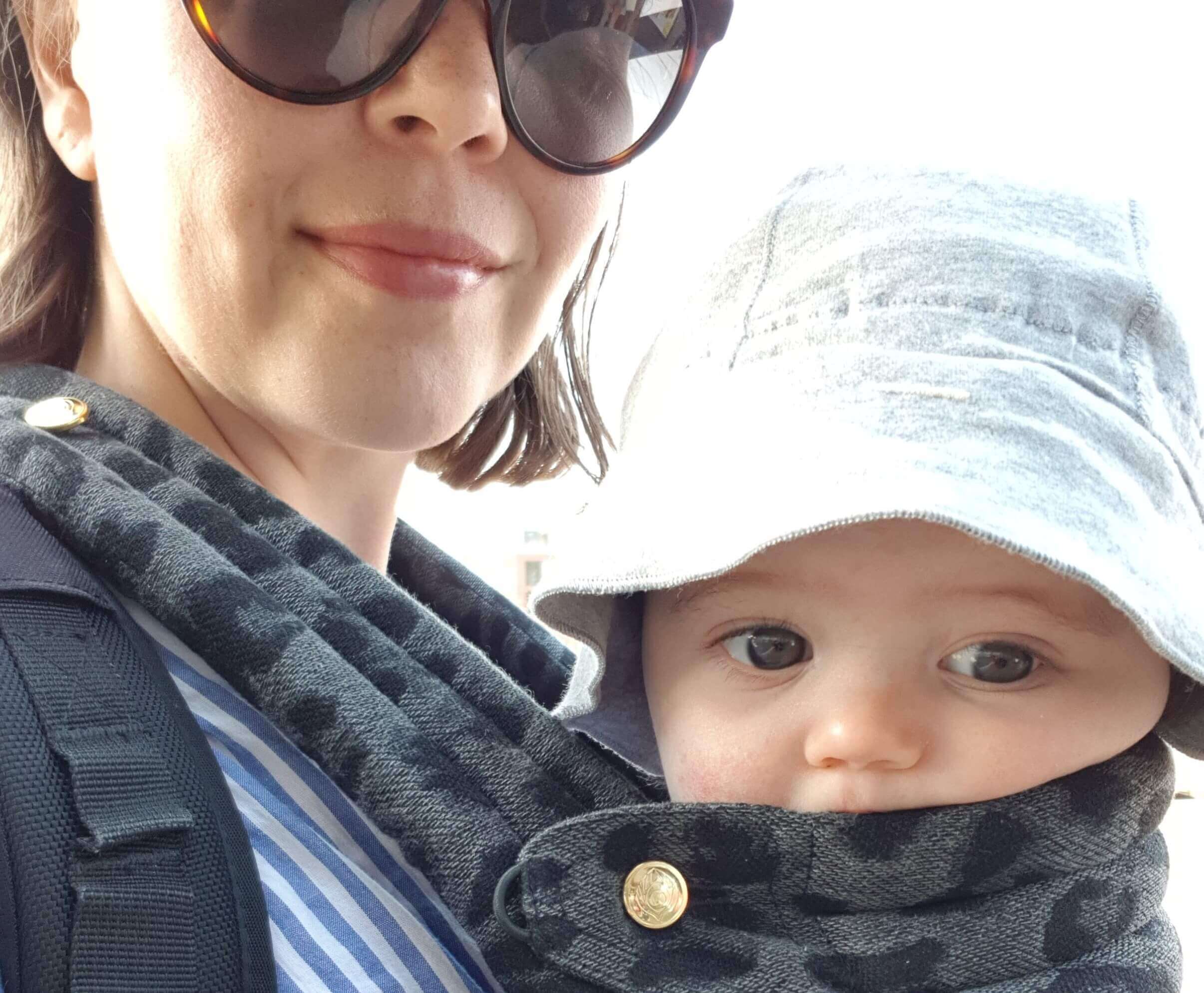
- Speaking of pushchairs, double check your buggy is allowed to stay with you until the gate. Most airlines will allow you to take a stroller/pushchair/buggy all the way to the gate with you but only certain kinds; normally ones that are one piece and fold up umbrella-style or into a briefcase sized fold (as our favourite travel pushchair does). There are also some that are allowed on the plane with you, meaning you don't have to wait at the gate for your buggy, or worse have to walk all the way to baggage reclaim to get it (which is the case at Amsterdam Schiphol, FYI!).
- This really is just my opinion but unless your baby is very young, small and sleeps predictably way, the bassinet is VERY overrated. We have never used one on a flight because our youngest was too big already (by seven months!) to go in one on a long-haul flight and then when I saw them being used by other babies I realised it would never have worked as he would have pulled himself up and possibly over the side, meaning that I would have to have watched him the whole time. It's true that having that front row does give you a bit more space and you will likely be close to other families for solidarity, but your bags will all have to be packed up and stowed at take-off and departure which is not practical, in my opinion, as this is the time I need things like bottles, snacks and cuddly toys the most.
- I know not everyone will be able to but, if you can afford it, book your under 2-year-old an extra seat on long-haul flights. I know it's fantastic that you don't need to pay for a seat for your under-2s but this is actually not as sweet a deal as it sounds once you're on the plane with a pretty big toddler strapped on your seat. eating up all your leg room and chest space. Getting that extra seat gives you more room for them to play in, more room for your to extend your legs when they are on you, and ideally, if you're travelling with another adult, you can have that extra seat in the middle of you, somewhat trapping your kid in one place.
- And this is the perfect place to use a JetKids BedBox, which is well worth investing in if you are doing lots of flights with children under 4. I've reviewed this magic airplane toddler bed and wheelie suitcase in full here, but although it didn't guarantee endless hours of sleep for our toddler son on long-haul flights, it did make them considerably easier than if we'd not had it. You could also buy one with friends (as long as you don't travel at the same time) to keep the cost low.
- If you can't afford that extra seat, be sure to ask if the flight is full at check-in and kindly enquire if you could have an empty seat next to you. If you don't ask, you don't get.
- Ask to check in a bag if you have too many. This is mostly relevant on national carrier's short-haul flights where people really do maximise their carry-on luggage allowance and invariably staff will ask for volunteers to check in extra hand luggage. Get ahead of the curve and free yourself of one burdensome bag at check-in by asking if it would help the airline out if a bag was checked in.
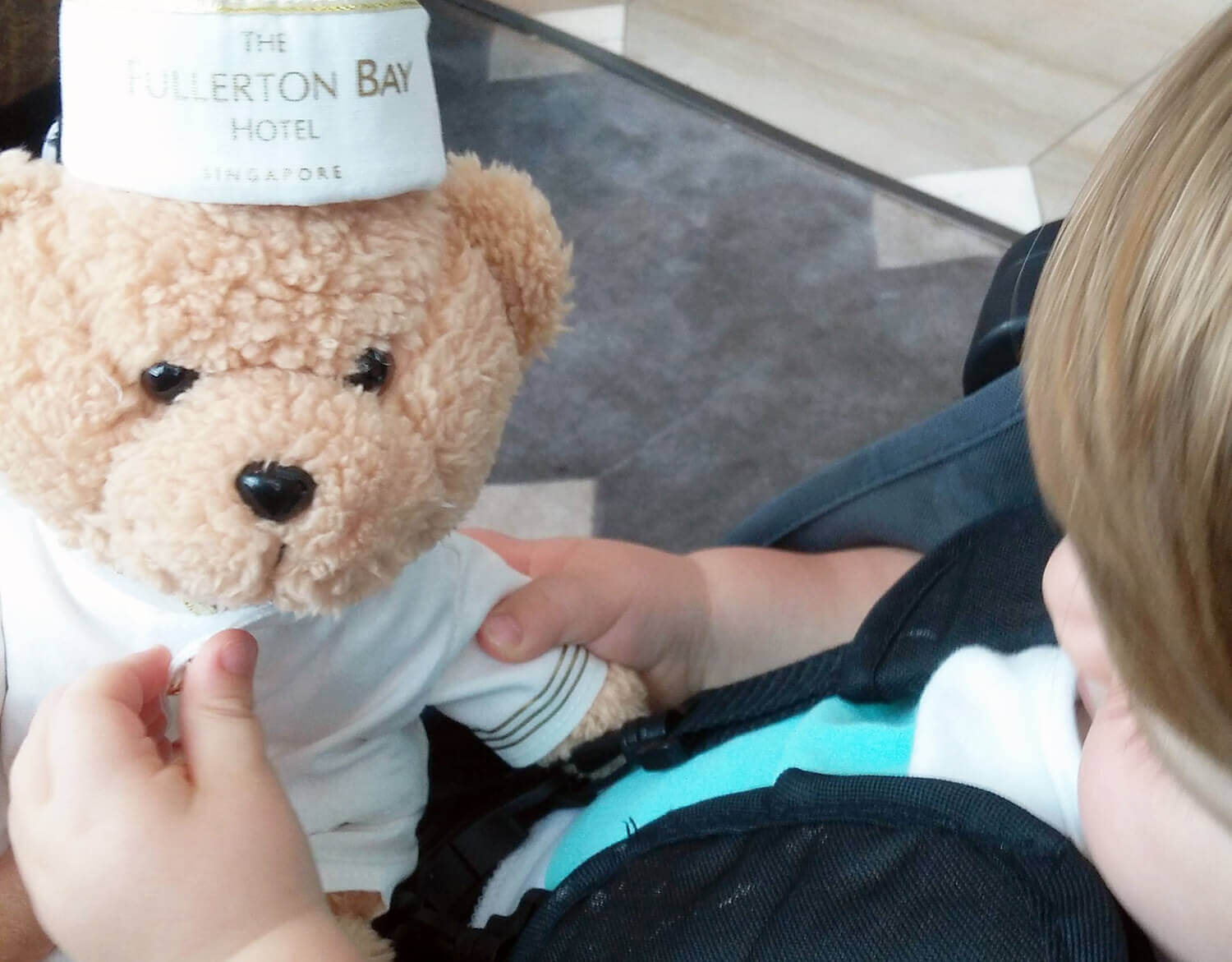
- Order a special meal for your kids if you want to get it first, or just ask if they can serve yours first. As fussy an eater as our kid is, he will nearly always demand food as soon as he sees it being served somewhere in his vague vicinity. Most airline staff would much rather fetch a meal earlier for your child than have them crying through their dinner service.
- SMILE! Not because you are apologising to your fellow passengers for having children, but because you are smiling to yourself. You deserve your positivity. You deserve your approval. You deserve your love, especially during a stressful experience like travelling with kids. I also find my kids respond better to me when I'm smiling, making jokes with them etc. Thirdly, but perhaps more importantly, airline/airport staff and fellow passengers are more likely to be more helpful when you are smiling or asking politely for assistance rather than demanding it, or not asking at all.
- YOU CAN NEVER HAVE TOO MANY SNACKS! For your kids, for you, and for your kids again.
- OR PAINKILLERS! If you're prone to stress headaches, pack those painkillers. If there's a 10% chance one of your kids will be teething/suffering with a cold/get sore ears on the plane, pack those painkillers.
Sustainable Travel Advice
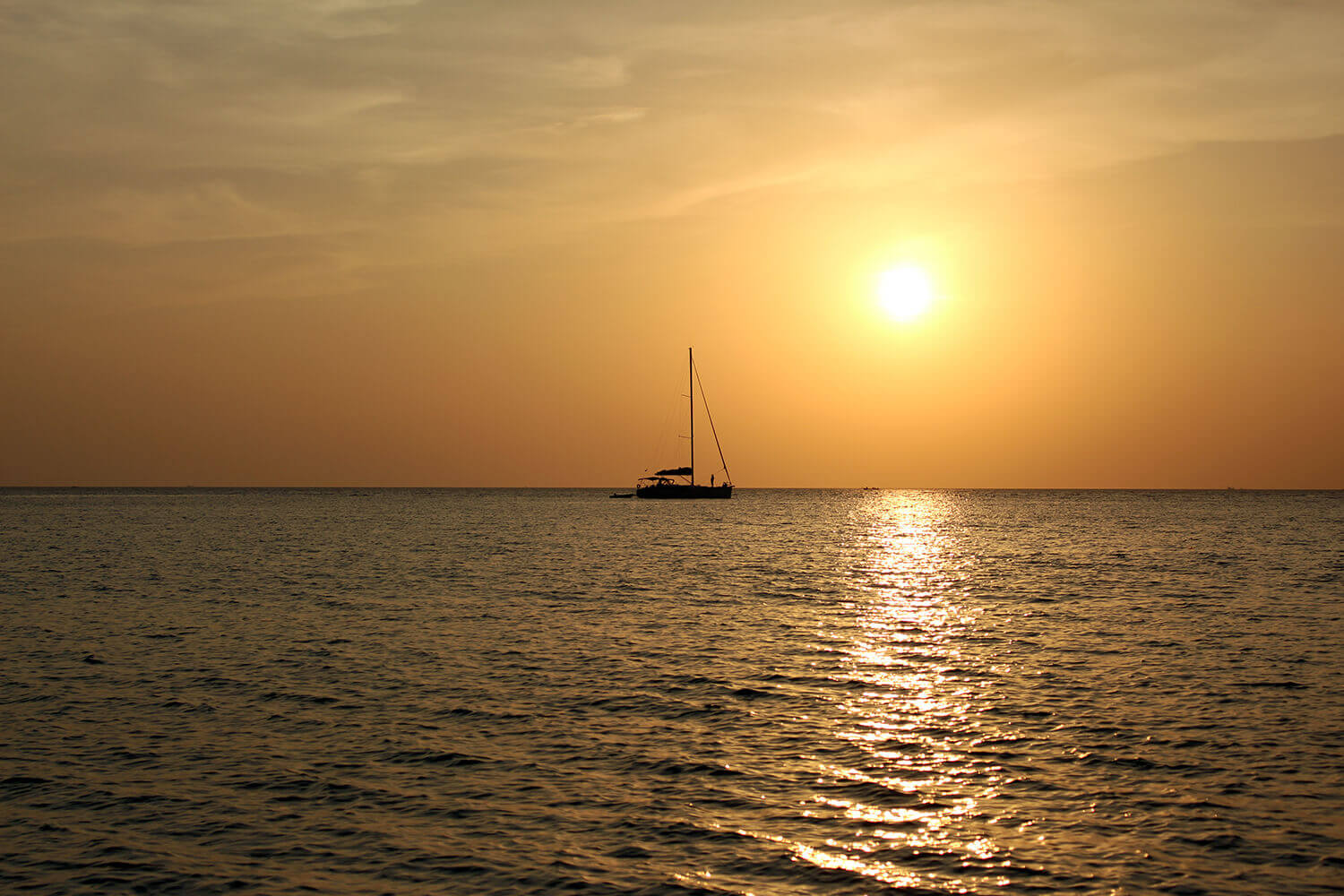
Let me be clear from the outset that I am not an expert at sustainable travel. In fact, I would say I am almost the anti-sustainable travel advice. I know much more about how not to do it than how to do it. But I also think that makes me someone who can offer some advice and perhaps a gentle introduction to you in terms of helping you figure out the most sustainable way to travel that is... err, sustainable for you.
- Firstly, it goes without saying that the most sustainable way to travel is sort of to not travel, or to travel less. Taking flights, driving long distances, staying in hotels, getting taxis, staying in resorts with high energy usage and food waste, using up any kind of resource anywhere impacts the environment. So by committing to fewer, better planned and more intentional trips is really the first step in achieving more sustainable travel.
- Change your travel choices. Long-haul flights are more damaging than short-haul so if you must fly, don't travel so far. Newer planes are better for the environment than older fleets. The train is more sustainable than driving, so choose public transport where and when you can. Electric or hybrid cars are more common now as hire cars.
- Choose more sustainable destinations. Destinations know that people want their travel to have less impact on the environment and so many places now pitch themselves as eco-friendly choices
- Find out where your money goes. Big brands are not unaware of the growing trend for consumers to be more eco-conscious with their money so beware "greenwashing", where huge corporations with huge carbon footprints launching new seemingly sustainable brands. Instead try to stay in family-owned accommodation, spend money with small and local businesses in your destination, and check out sustainable travel blogs or social media accounts from that destination. If you are in doubt about where your money is going with a hotel or a tour company, email them and ask. Holding businesses accountable is an important thing to do in this current climate (no pun intended).
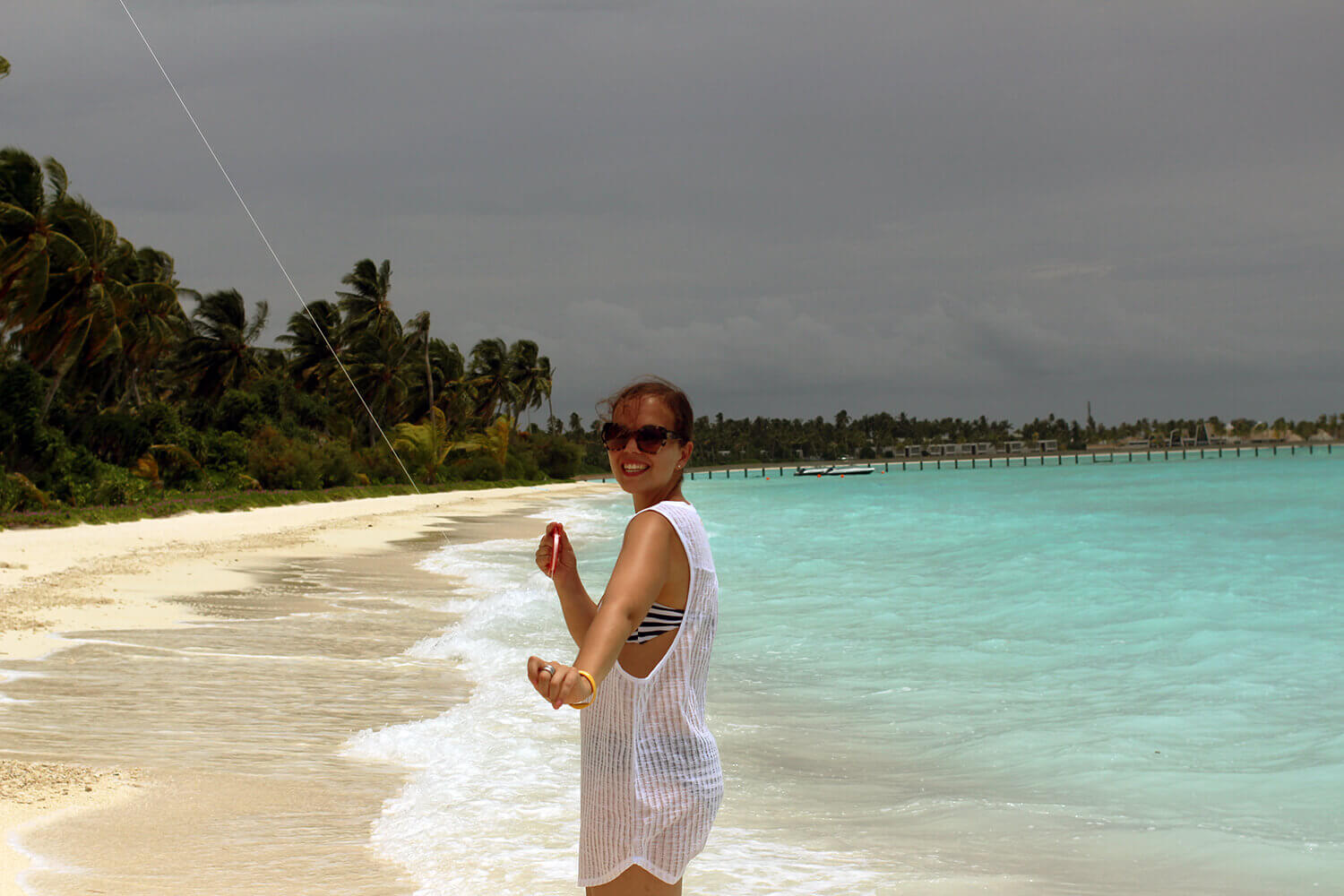
- Again, contacting the local tourist board is a great idea to find out how you can best visit their destination with minimal negative impact on the local environment and potentially maximum positive effect on the local people.
- Don't buy a whole wardrobe of new holiday clothes. I cringe about how many new clothes I used to buy for holidays, and then I cringe harder when I think about how little I wore them after that particular trip, and sometimes even ON that holiday. Fast fashion is one of the leading contributors to the climate crisis so try to avoid buying fast fashion wherever you can and arguably the best thing you can do to improve this situation is to use what you have, mend clothes when you can and if you must buy new, get second hand or sustainably sourced clothes. Yes, this is hard and more expensive for some of us, which is why I always say do what you can, not do as I do or someone else.
- Take reusable things with you so you never need to use unnecessary plastic (or spend money you can save). The things I always travel with now for me and my kids include water bottles, lunch boxes for leftovers or snacks, a couple of fold-up shopping bags or cloth tote bags, cloth flannels I can wet with water to clean faces and hands (rather than using up lots of baby wipes), muslins to soak up spills and messes, a re-usable coffee cup, and while I do still take a few re-sealable plastic bags with me I try to re-use them as many times as possible, and for rubbish I can't get rid of immediately, I now use biodegradable nappy sacks. I am well aware in the grand scheme of things, these are all VERY small things and will never undo the damage an international flight causes, but when I think about all the plastic bottles and disposable coffee cups I've saved over the last few years it does actually feel quite significant.
- Research offsetting before you actually set off and offset. It would appear that greenwashing and scams have started to cash in on the growing trend of offsetting your flights and figuring out the best way to do it can be so much of a headache and minefield that you don't actually do anything to offset the carbon footprint of your travel. There are many helpful articles about doing this the right way, but for me personally I normally tick the option to offset on an airline's website and then I use this calculator to figure out what the impact is and I make another donation to their recommended charity, or I head to Team Trees to make the appropriate donation there. Alternatively, on this website for European forests you can actually choose which part of the continent you donate trees to.
And I think that's it.. for now. I am definitely going to keep updating these lists of travel advice as and when new travel tips come to me but for now, if you want to save or share this post, here are some images you can pin to Pinterest:
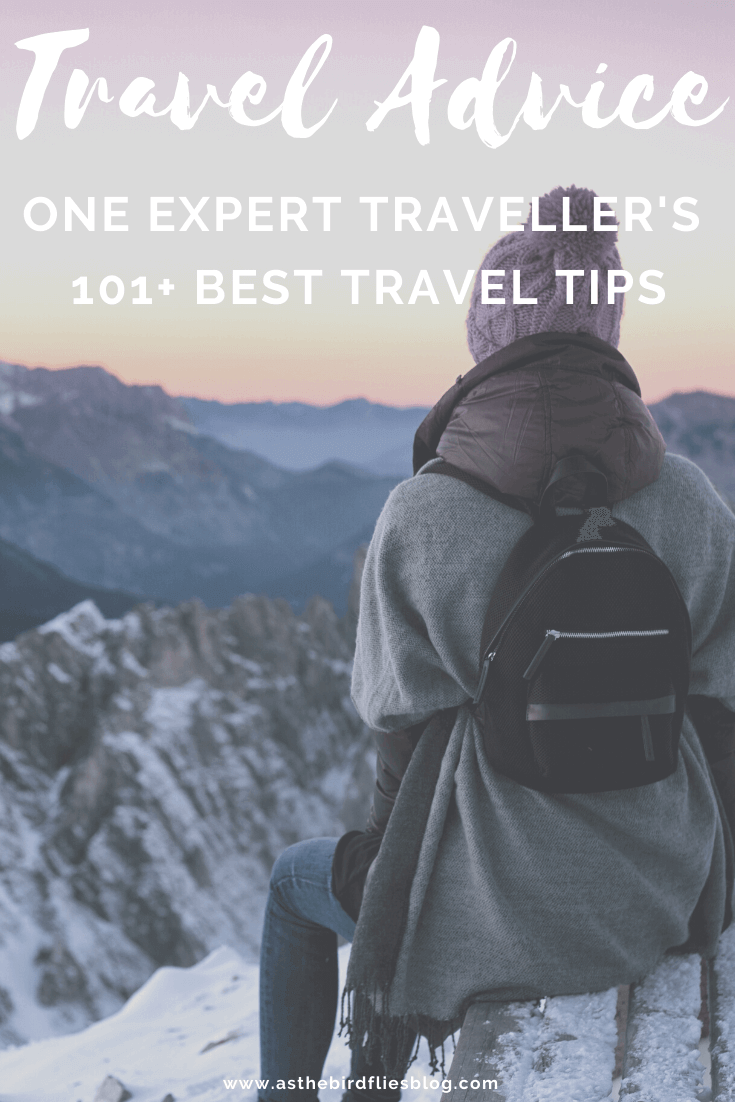
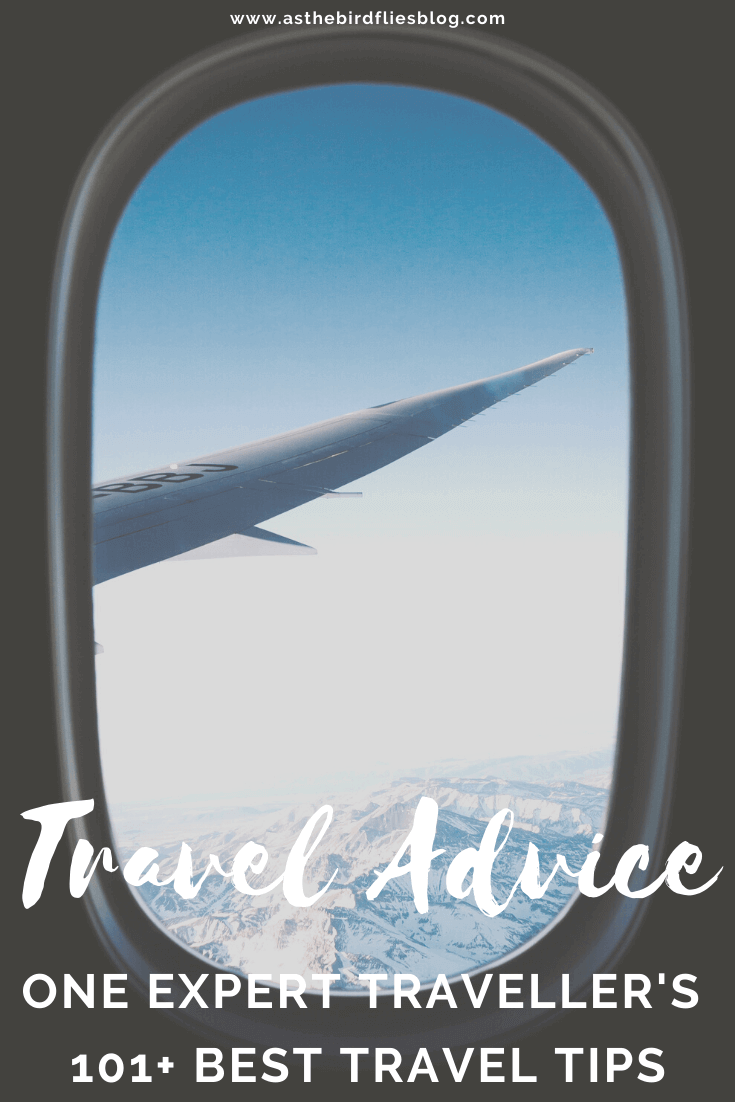
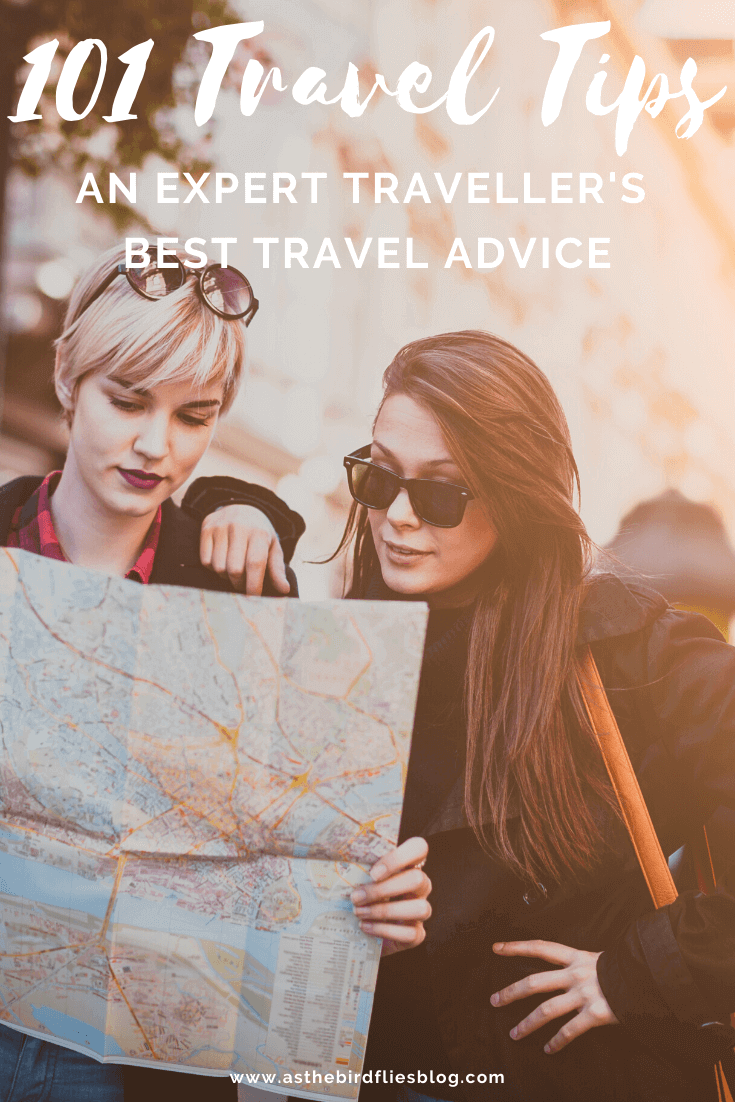
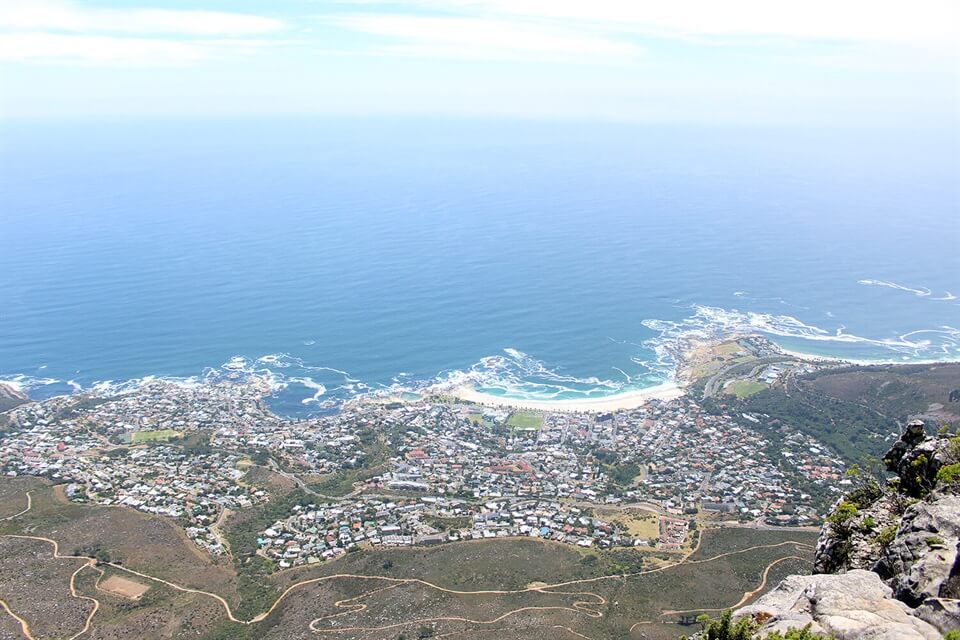
 About the Blog & Frankie
About the Blog & Frankie Welcome to My Amsterdam Travel Blog!
Welcome to My Amsterdam Travel Blog! Welcome to My Luxury Family Travel Blog!
Welcome to My Luxury Family Travel Blog! Welcome to My Writing Blog!
Welcome to My Writing Blog! Lover Mother Other: Poems - Out Now!
Lover Mother Other: Poems - Out Now! I Write Stories That Move You
I Write Stories That Move You Order WriteNOW Cards - Affirmation Cards for Writers
Order WriteNOW Cards - Affirmation Cards for Writers Work With Me
Work With Me